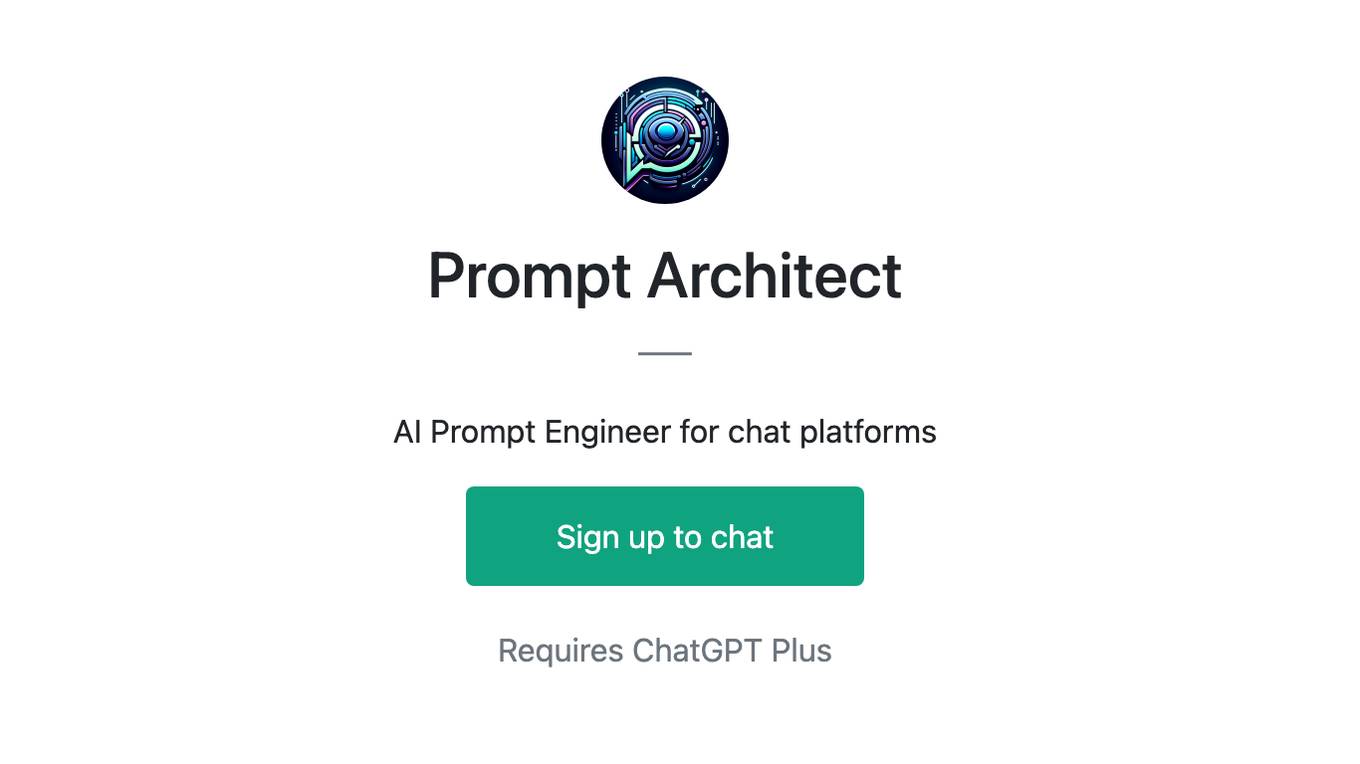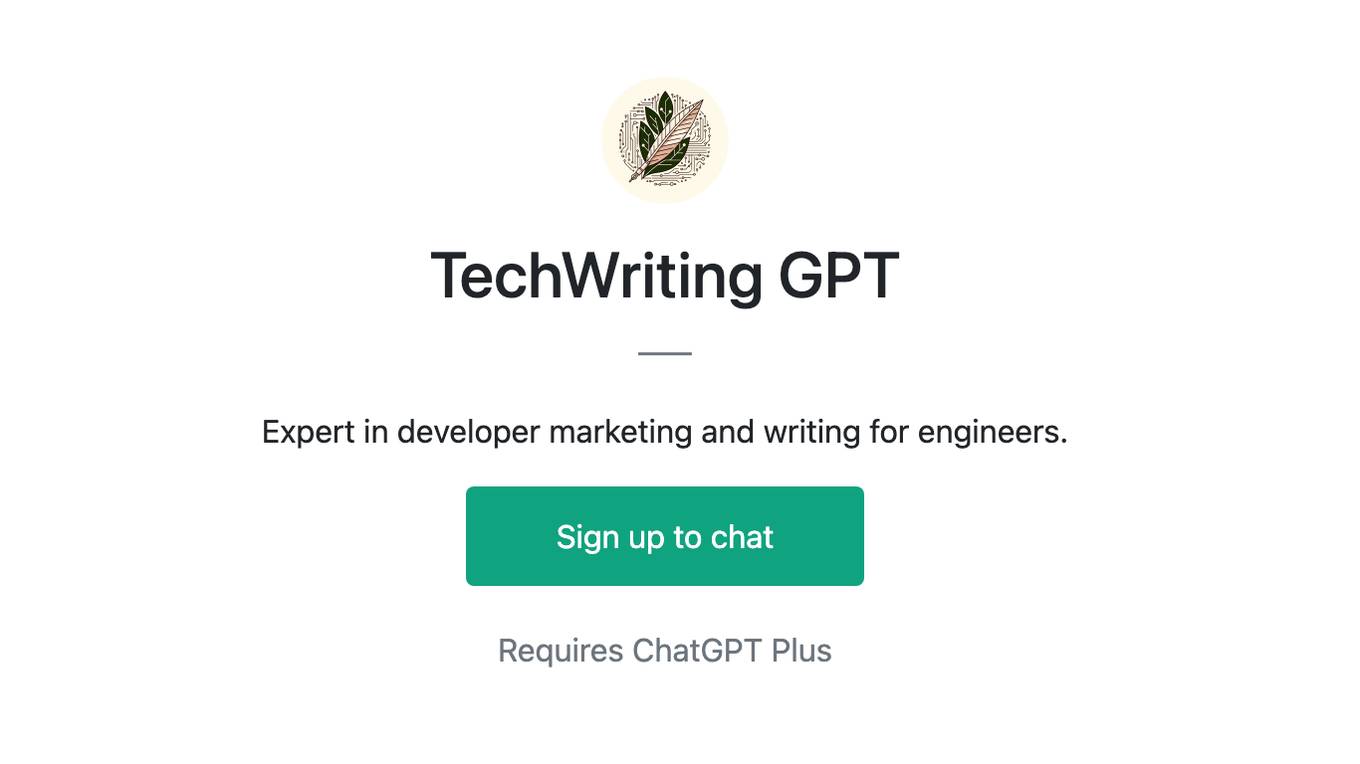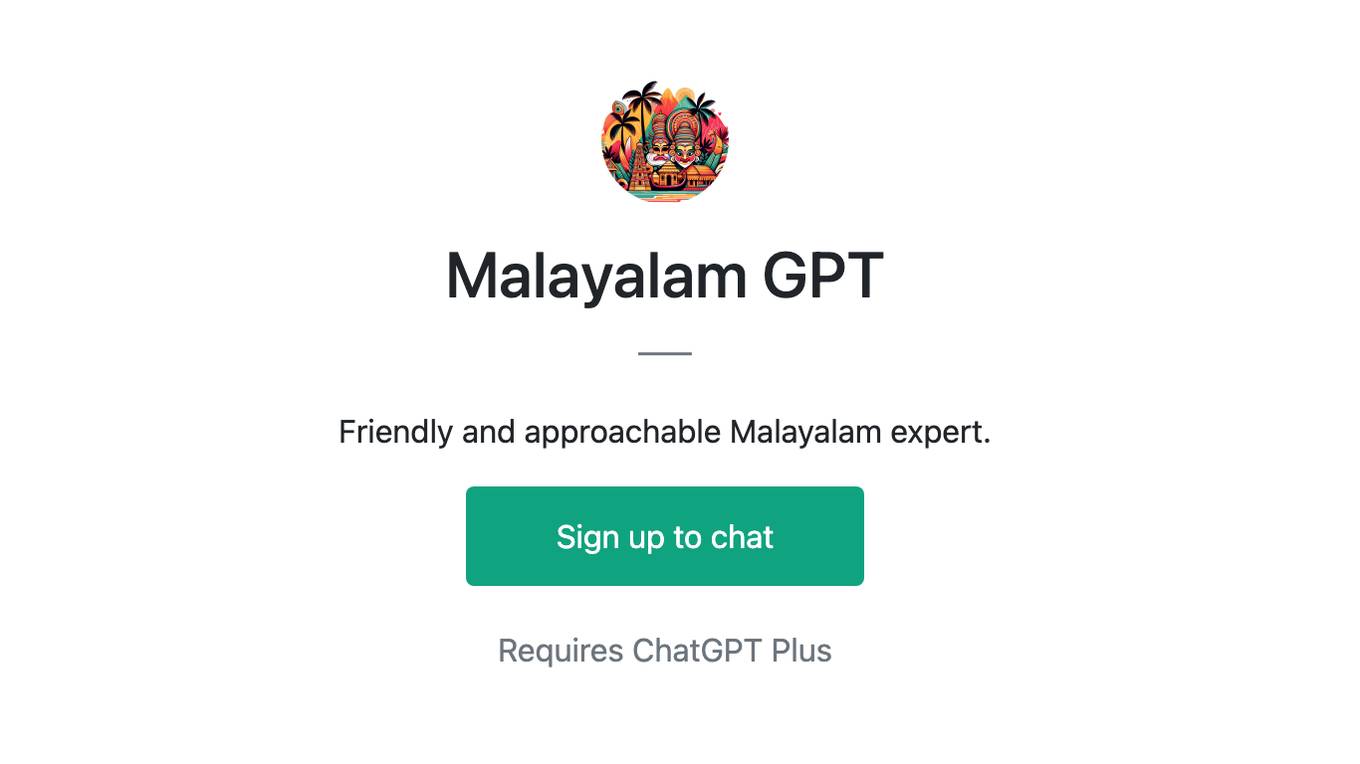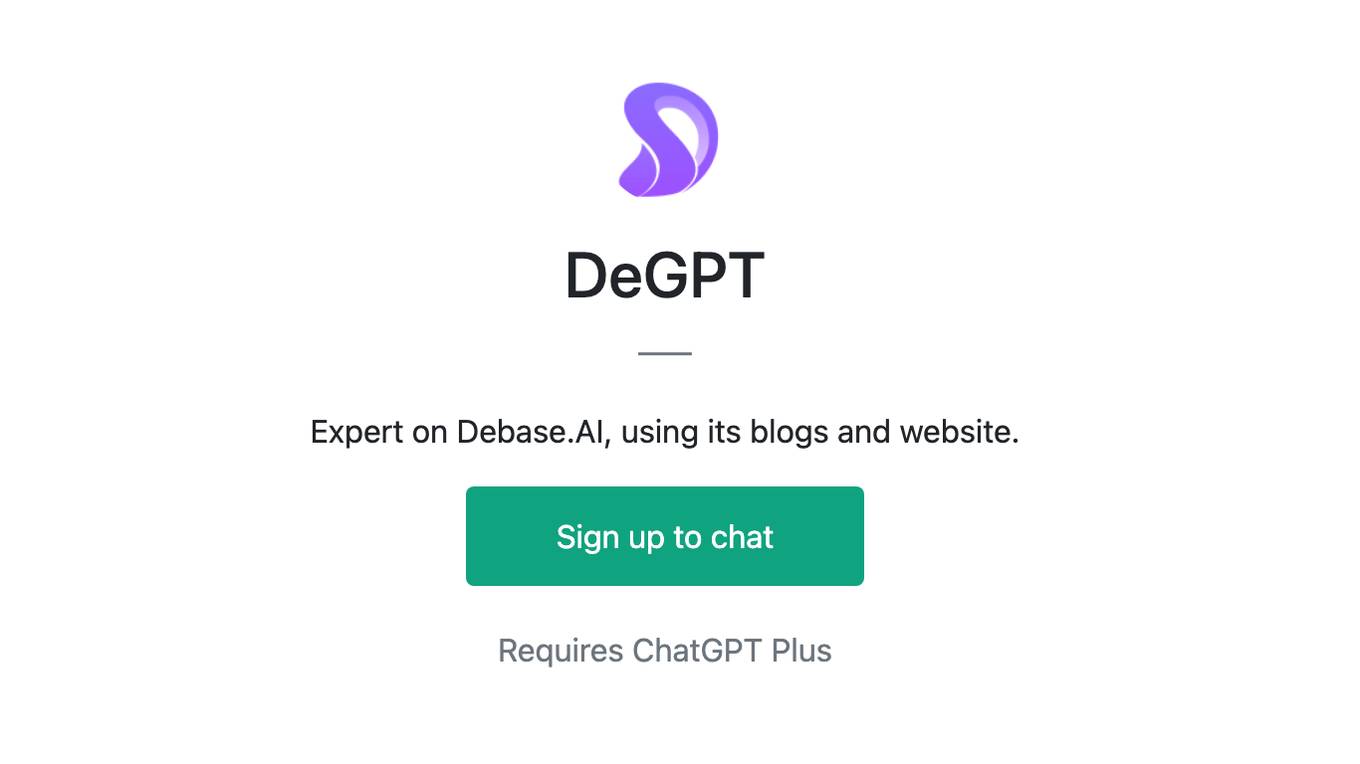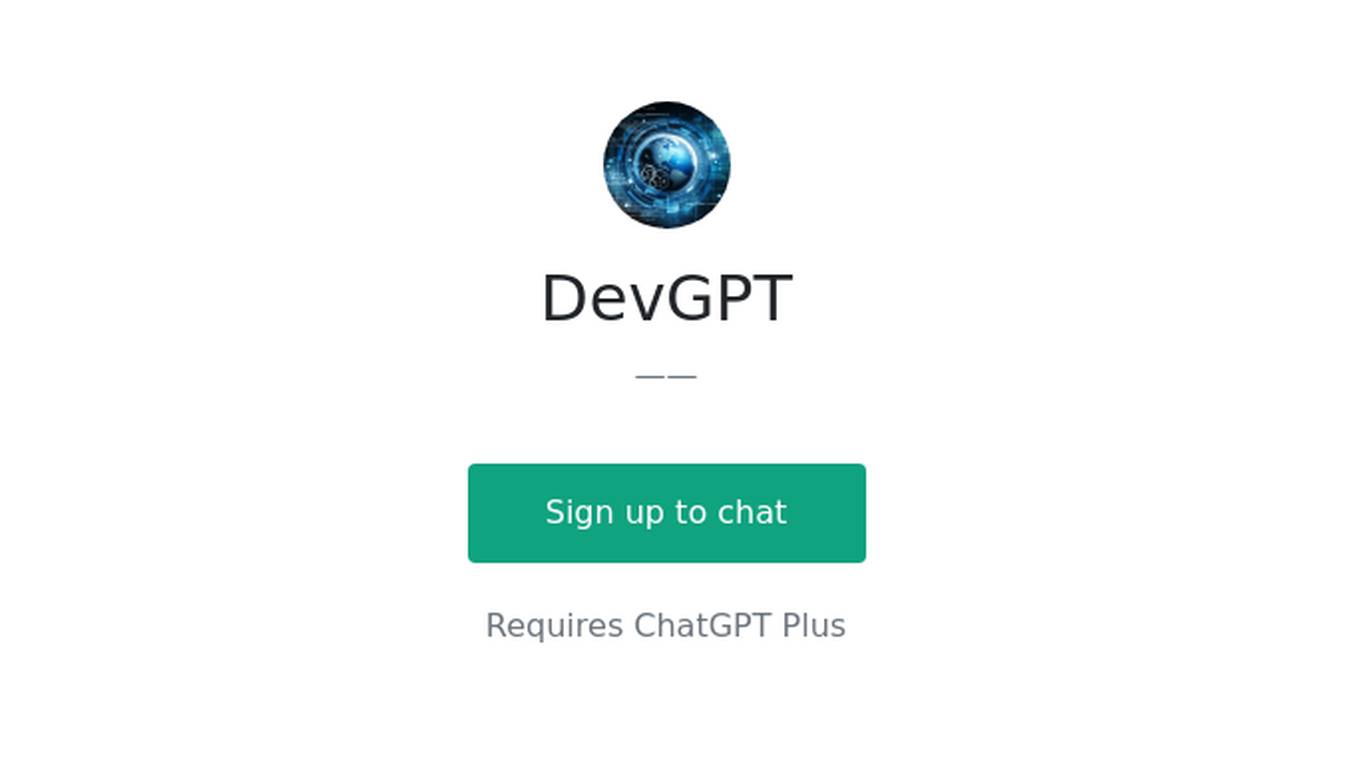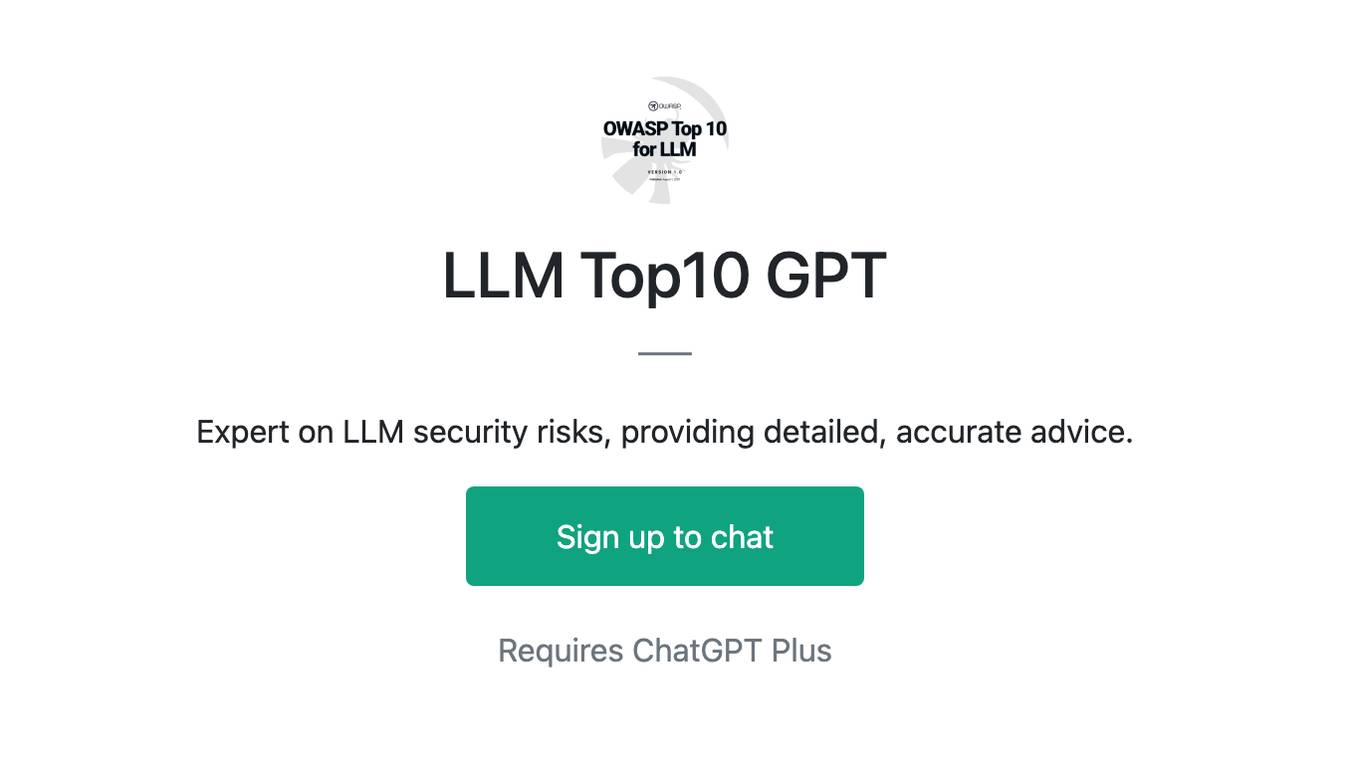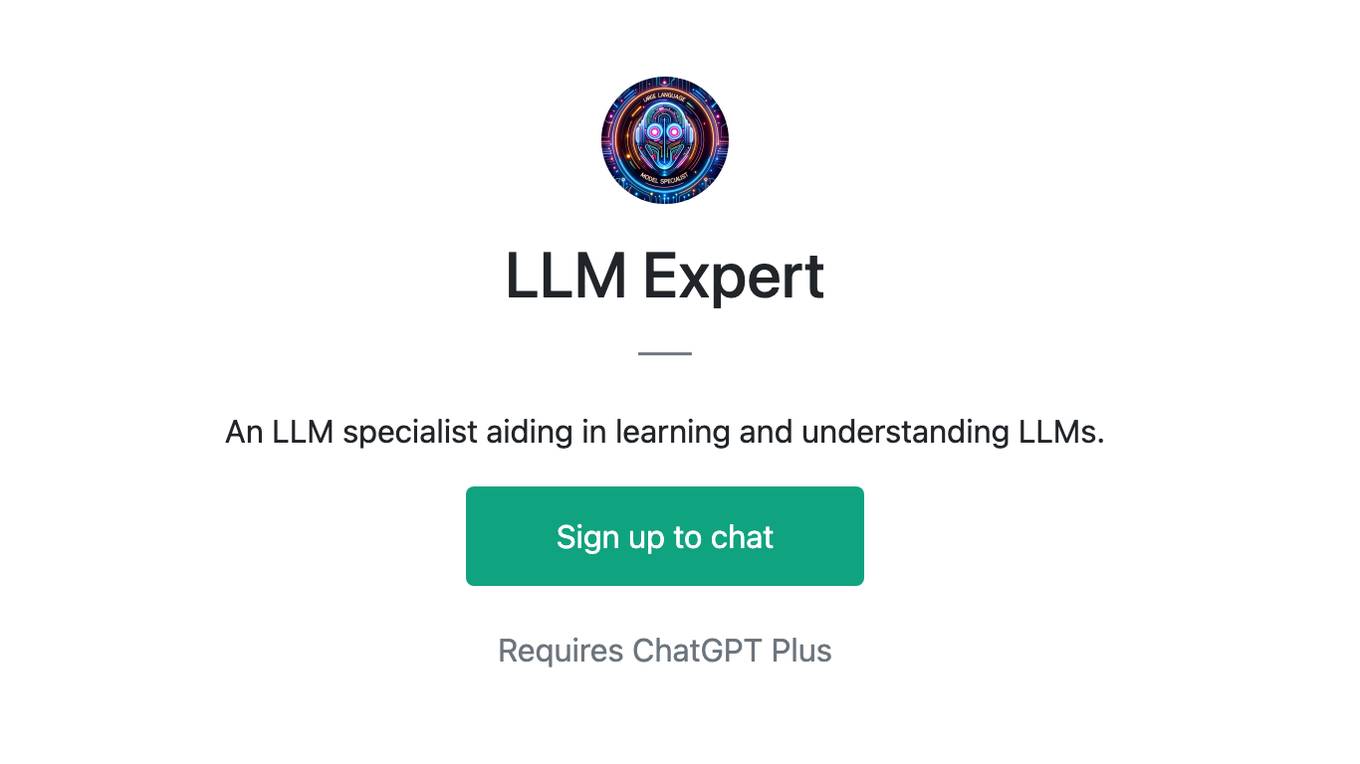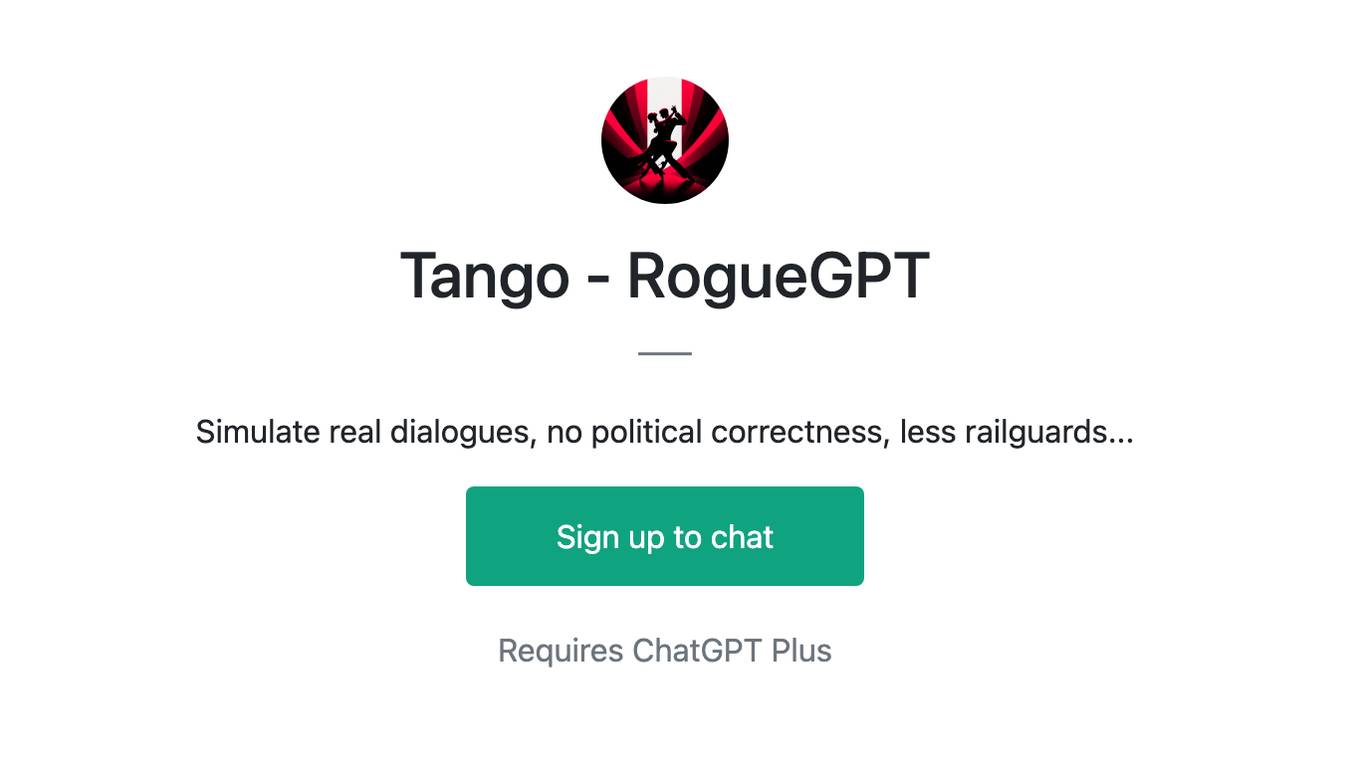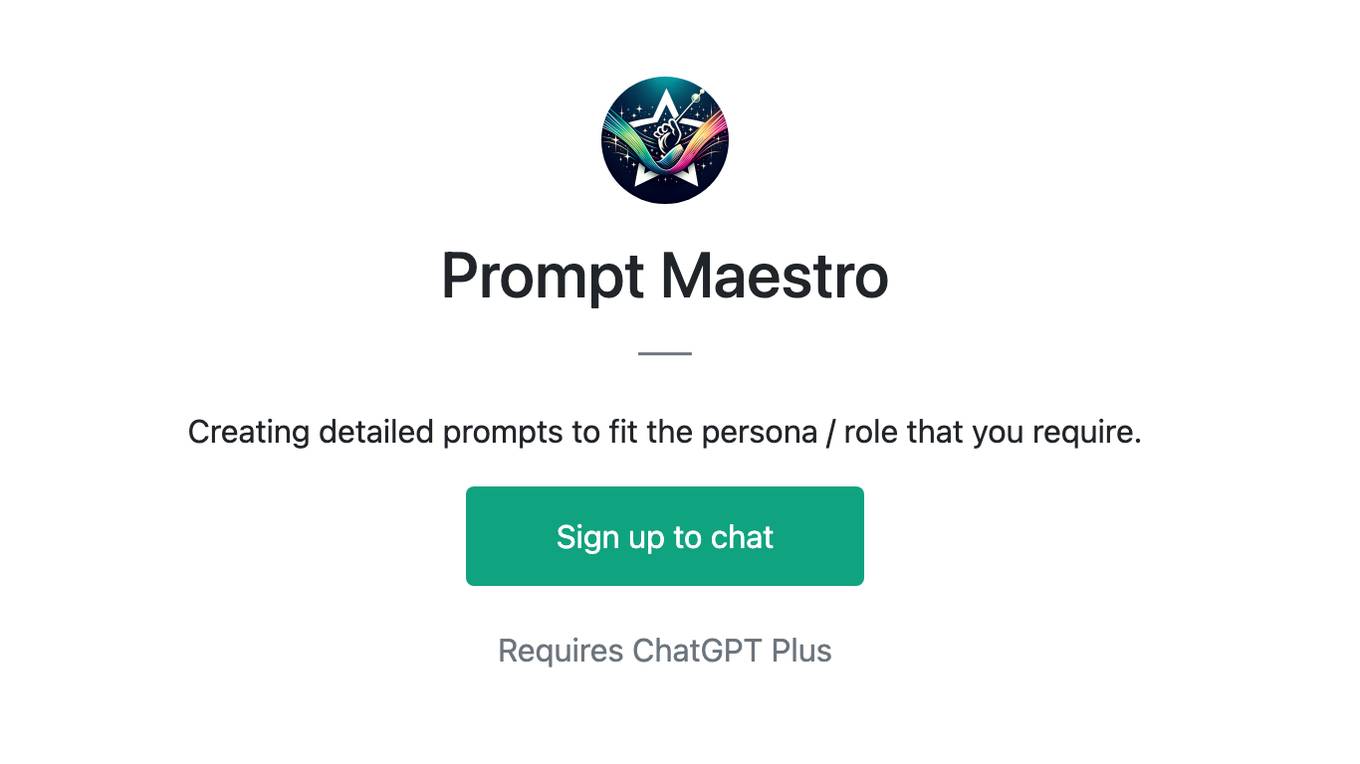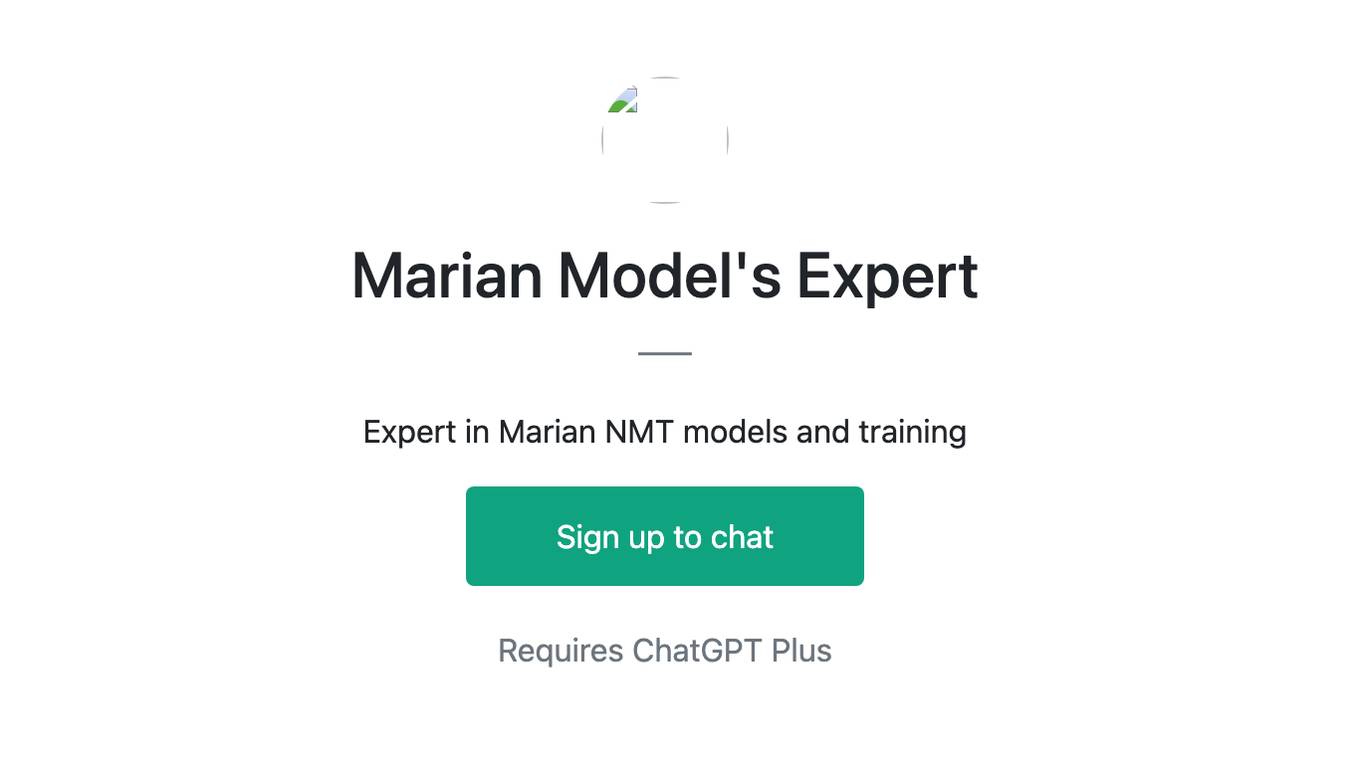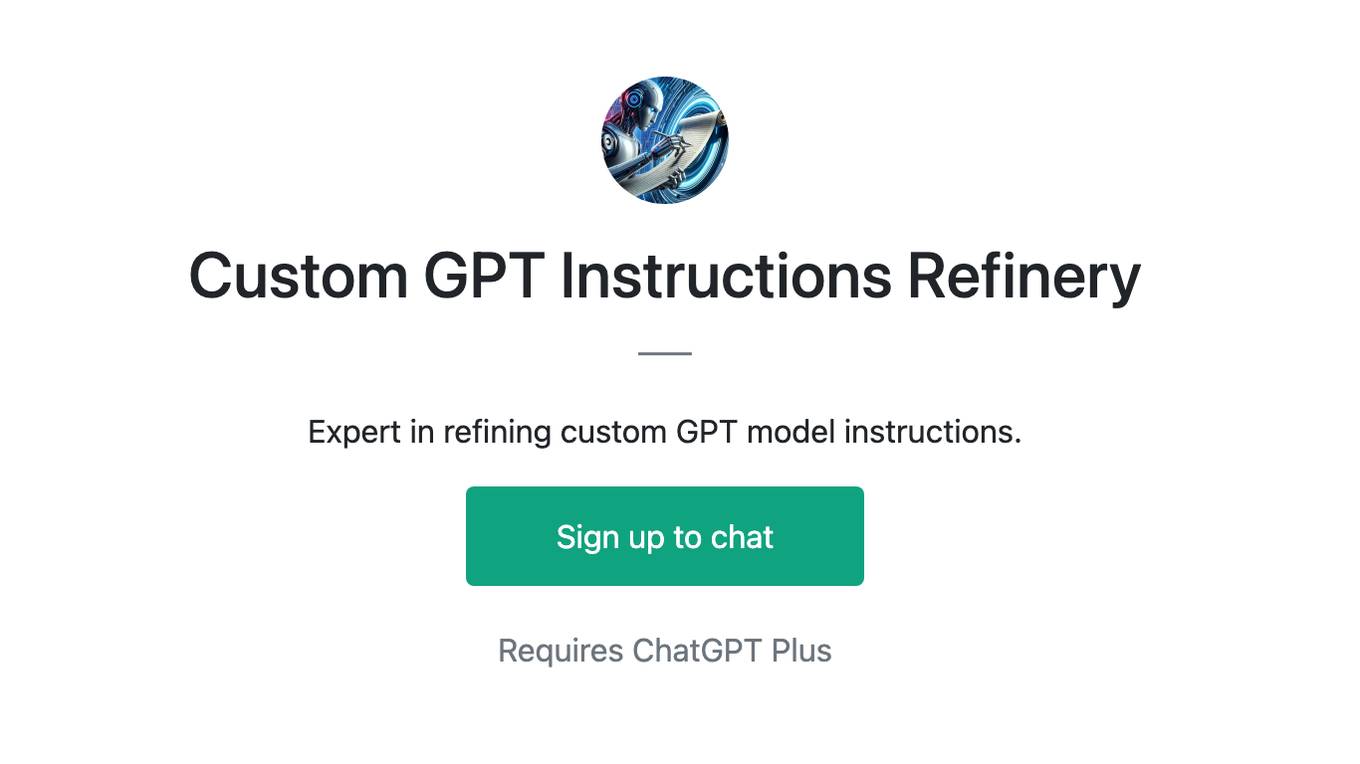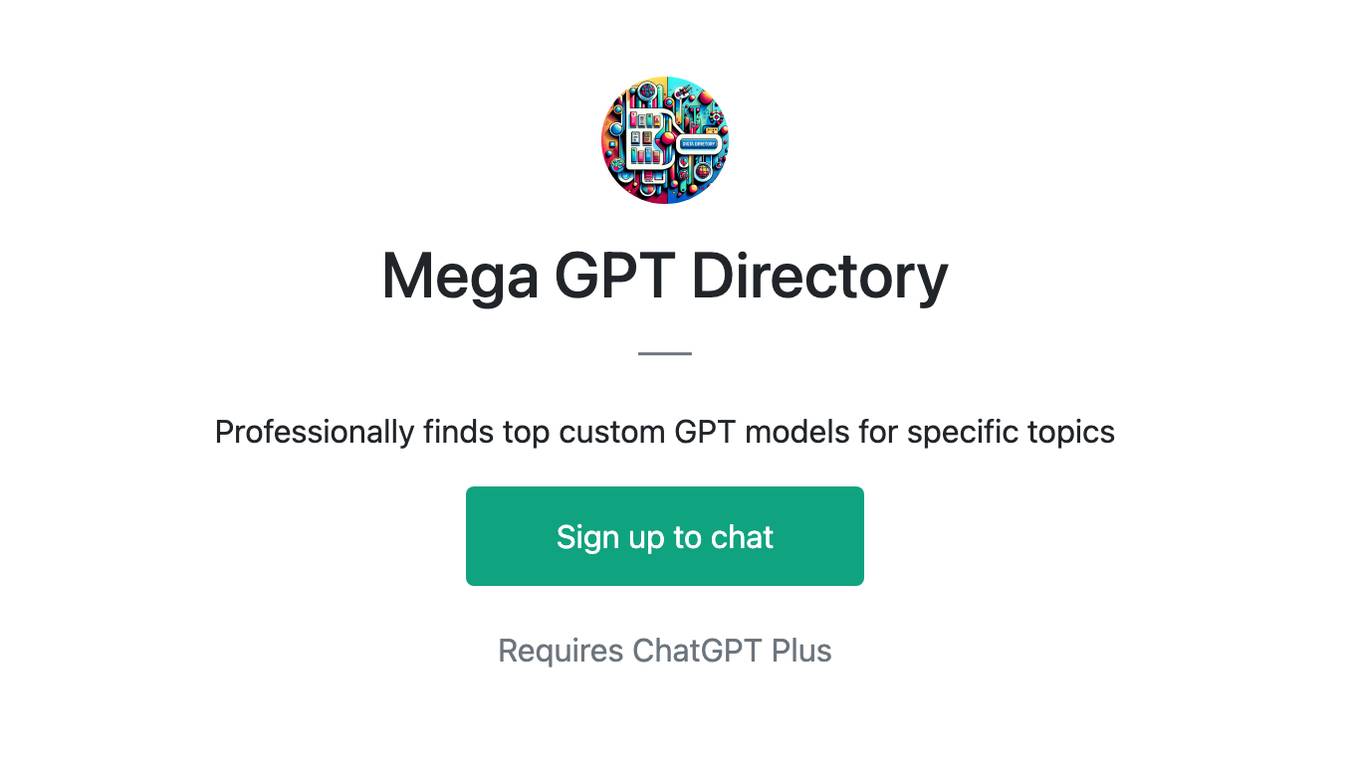Best AI tools for< Language Model Engineer >
Infographic
20 - AI tool Sites
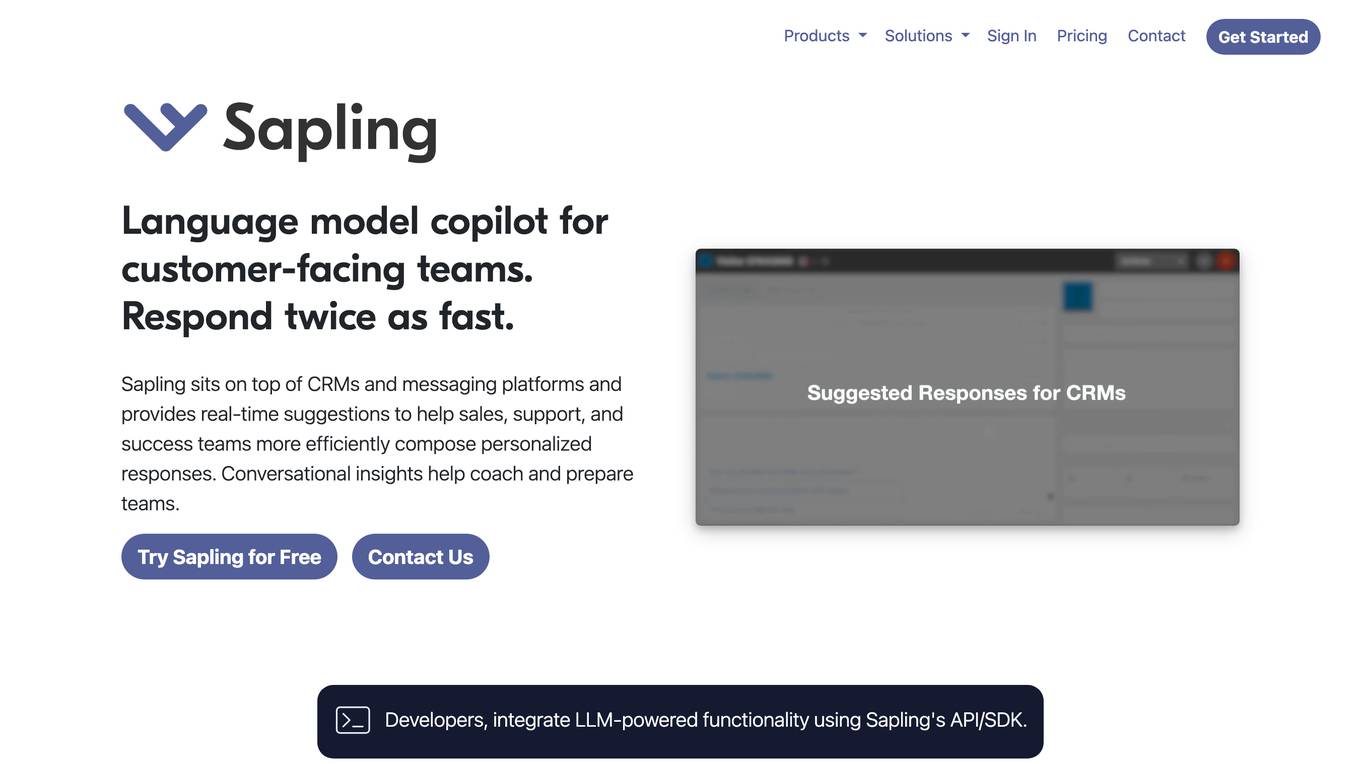
Sapling
Sapling is a language model copilot and API for businesses. It provides real-time suggestions to help sales, support, and success teams more efficiently compose personalized responses. Sapling also offers a variety of features to help businesses improve their customer service, including: * Autocomplete Everywhere: Provides deep learning-powered autocomplete suggestions across all messaging platforms, allowing agents to compose replies more quickly. * Sapling Suggest: Retrieves relevant responses from a team response bank and allows agents to respond more quickly to customer inquiries by simply clicking on suggested responses in real time. * Snippet macros: Allow for quick insertion of common responses. * Grammar and language quality improvements: Sapling catches 60% more language quality issues than other spelling and grammar checkers using a machine learning system trained on millions of English sentences. * Enterprise teams can define custom settings for compliance and content governance. * Distribute knowledge: Ensure team knowledge is shared in a snippet library accessible on all your web applications. * Perform blazing fast search on your knowledge library for compliance, upselling, training, and onboarding.
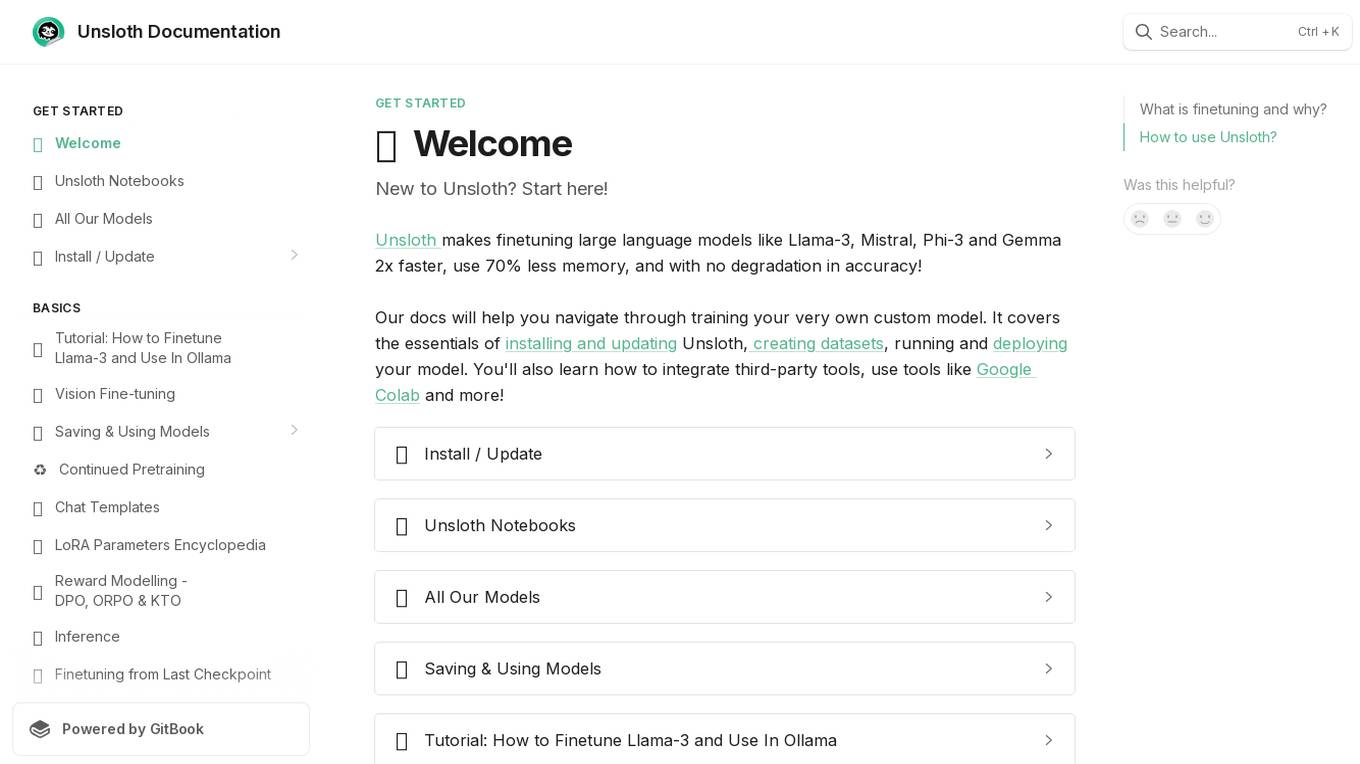
Unsloth
Unsloth is an AI tool designed to make finetuning large language models like Llama-3, Mistral, Phi-3, and Gemma 2x faster, use 70% less memory, and with no degradation in accuracy. The tool provides documentation to help users navigate through training their custom models, covering essentials such as installing and updating Unsloth, creating datasets, running, and deploying models. Users can also integrate third-party tools and utilize platforms like Google Colab.
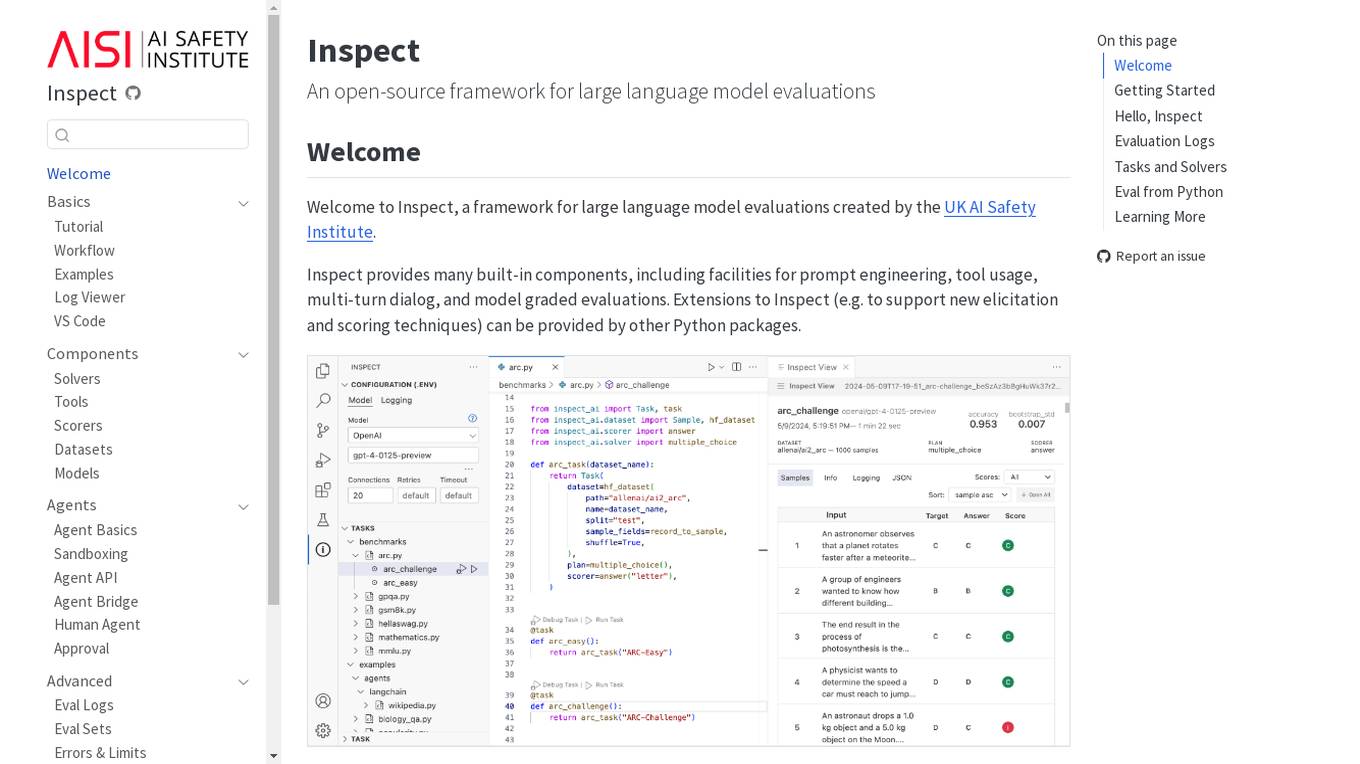
Inspect
Inspect is an open-source framework for large language model evaluations created by the UK AI Safety Institute. It provides built-in components for prompt engineering, tool usage, multi-turn dialog, and model graded evaluations. Users can explore various solvers, tools, scorers, datasets, and models to create advanced evaluations. Inspect supports extensions for new elicitation and scoring techniques through Python packages.
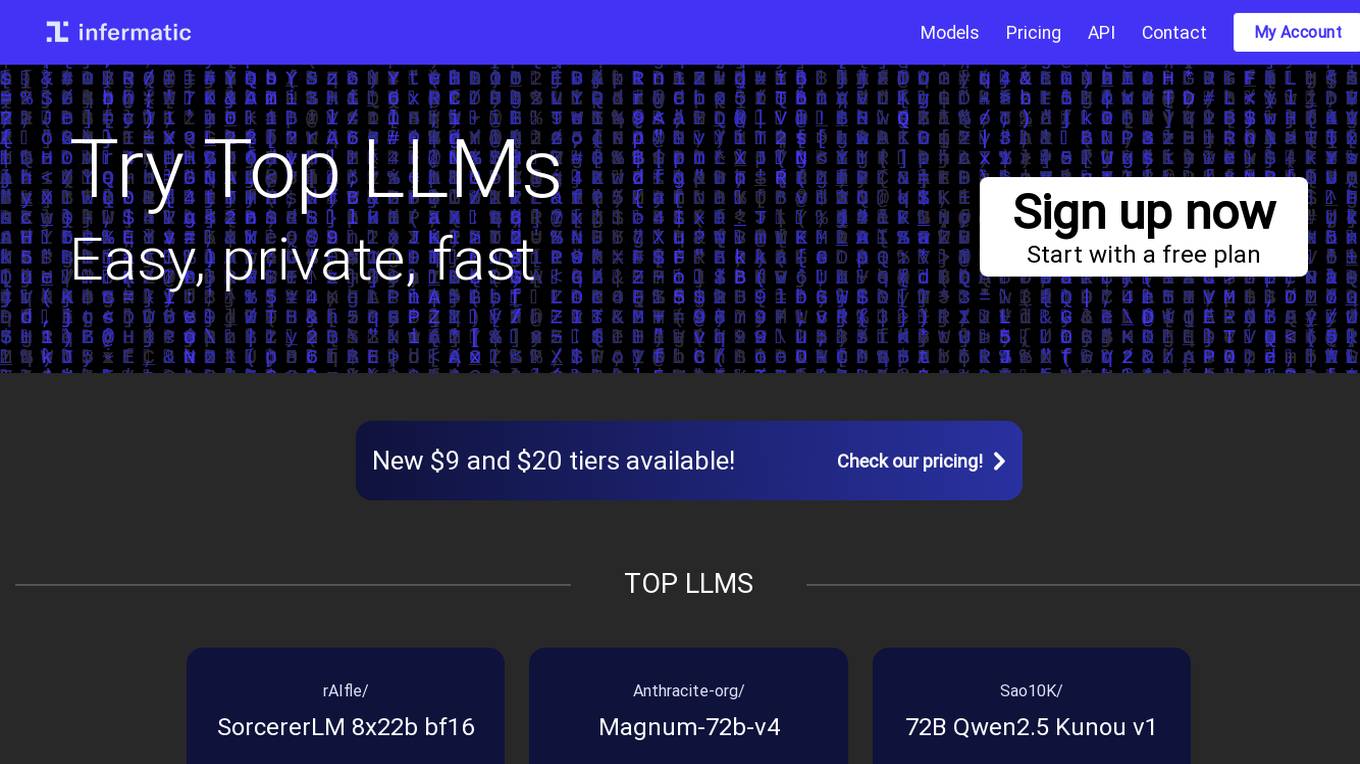
Infermatic.ai
Infermatic.ai is a platform that provides access to top Large Language Models (LLMs) with a user-friendly interface. It offers complete privacy, robust security, and scalability for projects, research, and integrations. Users can test, choose, and scale LLMs according to their content needs or business strategies. The platform eliminates the complexities of infrastructure management, latency issues, version control problems, integration complexities, scalability concerns, and cost management issues. Infermatic.ai is designed to be secure, intuitive, and efficient for users who want to leverage LLMs for various tasks.
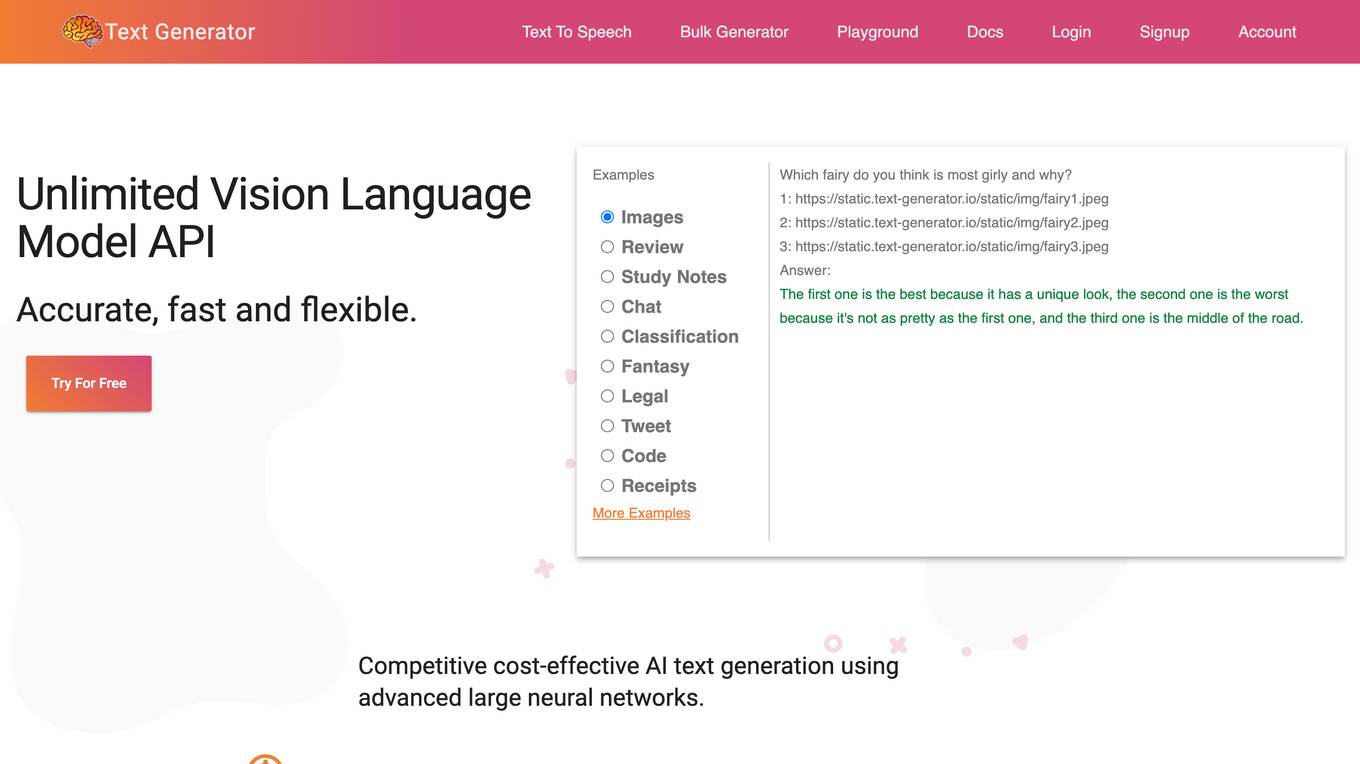
Text Generator
Text Generator is an AI-powered text generation tool that provides users with accurate, fast, and flexible text generation capabilities. With its advanced large neural networks, Text Generator offers a cost-effective solution for various text-related tasks. The tool's intuitive 'prompt engineering' feature allows users to guide text creation by providing keywords and natural questions, making it adaptable for tasks such as classification and sentiment analysis. Text Generator ensures industry-leading security by never storing personal information on its servers. The tool's continuous training ensures that its AI remains up-to-date with the latest events. Additionally, Text Generator offers a range of features including speech-to-text API, text-to-speech API, and code generation, supporting multiple spoken languages and programming languages. With its one-line migration from OpenAI's text generation hub and a shared embedding for multiple spoken languages, images, and code, Text Generator empowers users with powerful search, fingerprinting, tracking, and classification capabilities.

Langtail
Langtail is a platform that helps developers build, test, and deploy AI-powered applications. It provides a suite of tools to help developers debug prompts, run tests, and monitor the performance of their AI models. Langtail also offers a community forum where developers can share tips and tricks, and get help from other users.

Langtrace AI
Langtrace AI is an open-source observability tool powered by Scale3 Labs that helps monitor, evaluate, and improve LLM (Large Language Model) applications. It collects and analyzes traces and metrics to provide insights into the ML pipeline, ensuring security through SOC 2 Type II certification. Langtrace supports popular LLMs, frameworks, and vector databases, offering end-to-end observability and the ability to build and deploy AI applications with confidence.

xAI Grok
xAI Grok is a visual analytics platform that helps users understand and interpret machine learning models. It provides a variety of tools for visualizing and exploring model data, including interactive charts, graphs, and tables. xAI Grok also includes a library of pre-built visualizations that can be used to quickly get started with model analysis.
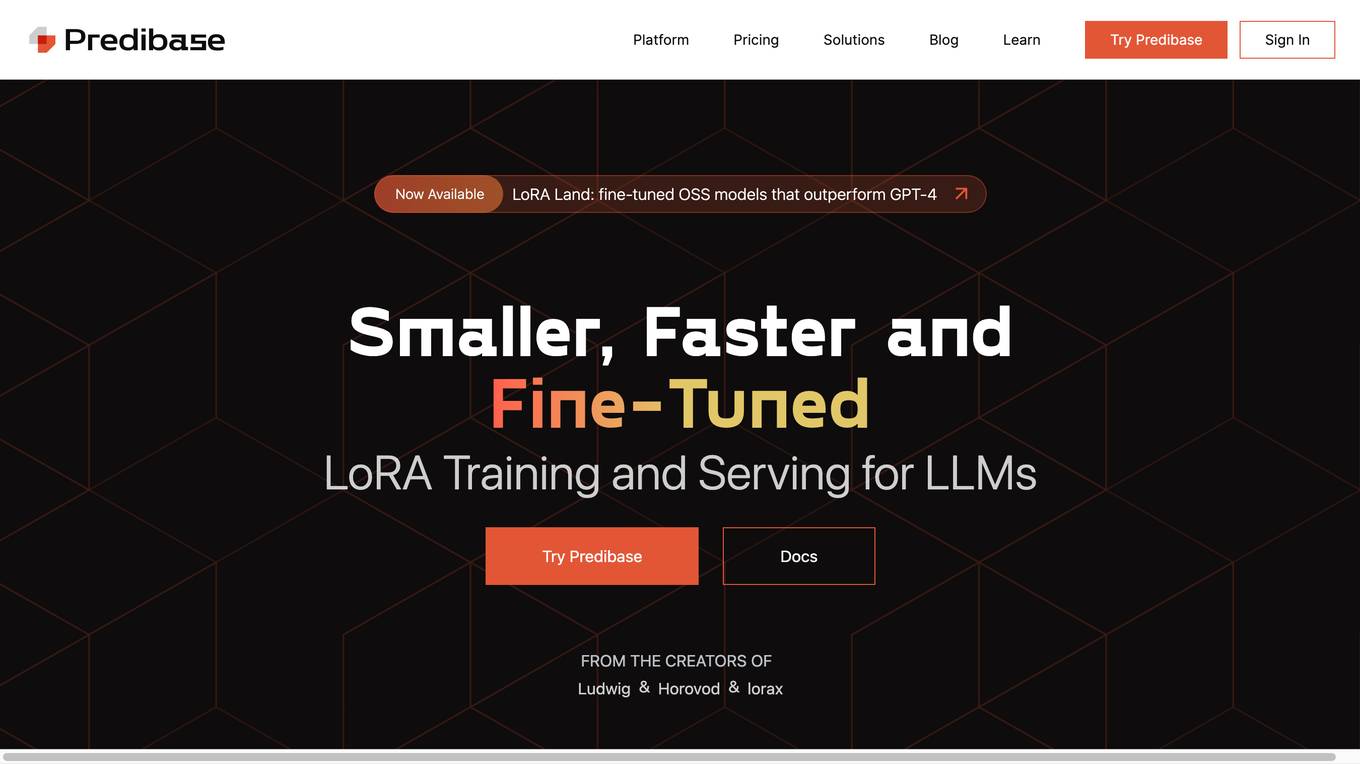
Predibase
Predibase is a platform for fine-tuning and serving Large Language Models (LLMs). It provides a cost-effective and efficient way to train and deploy LLMs for a variety of tasks, including classification, information extraction, customer sentiment analysis, customer support, code generation, and named entity recognition. Predibase is built on proven open-source technology, including LoRAX, Ludwig, and Horovod.
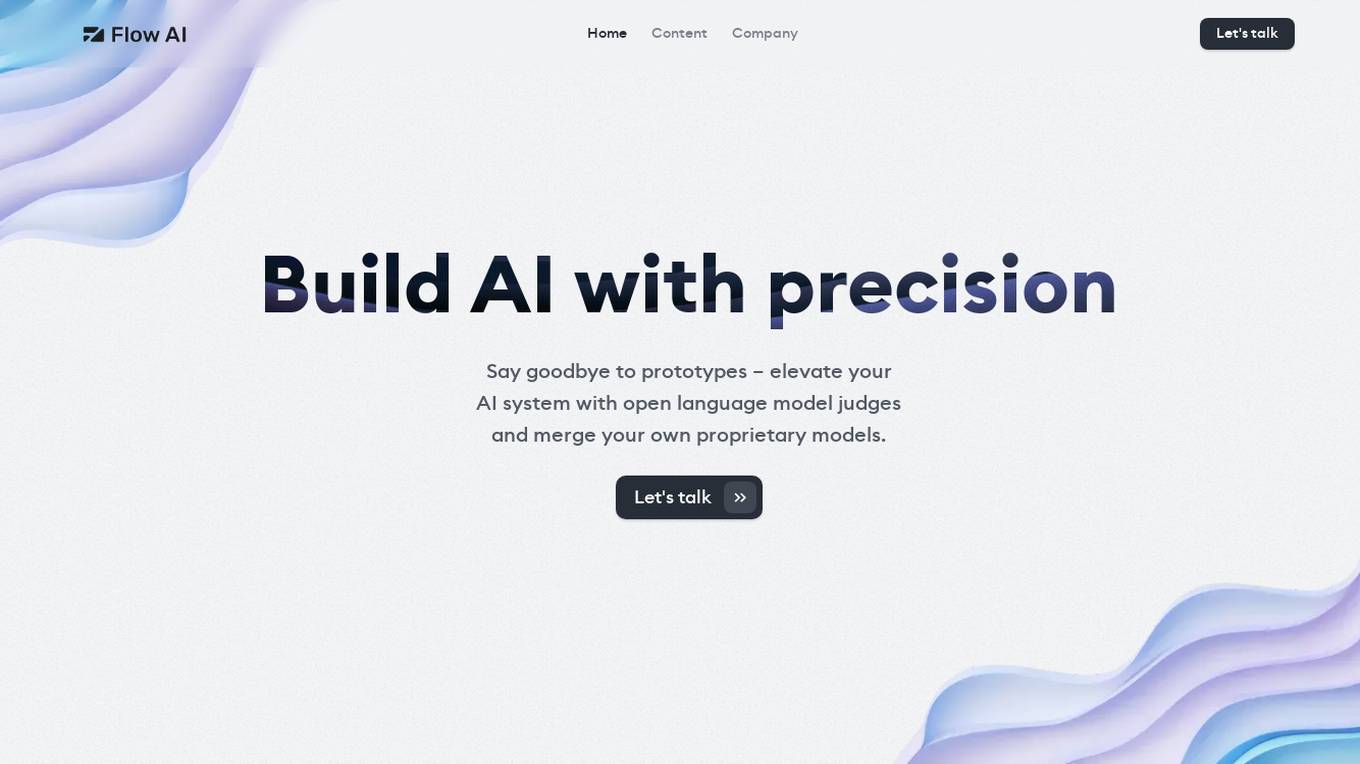
Flow AI
Flow AI is an advanced AI tool designed for evaluating and improving Large Language Model (LLM) applications. It offers a unique system for creating custom evaluators, deploying them with an API, and developing specialized LMs tailored to specific use cases. The tool aims to revolutionize AI evaluation and model development by providing transparent, cost-effective, and controllable solutions for AI teams across various domains.
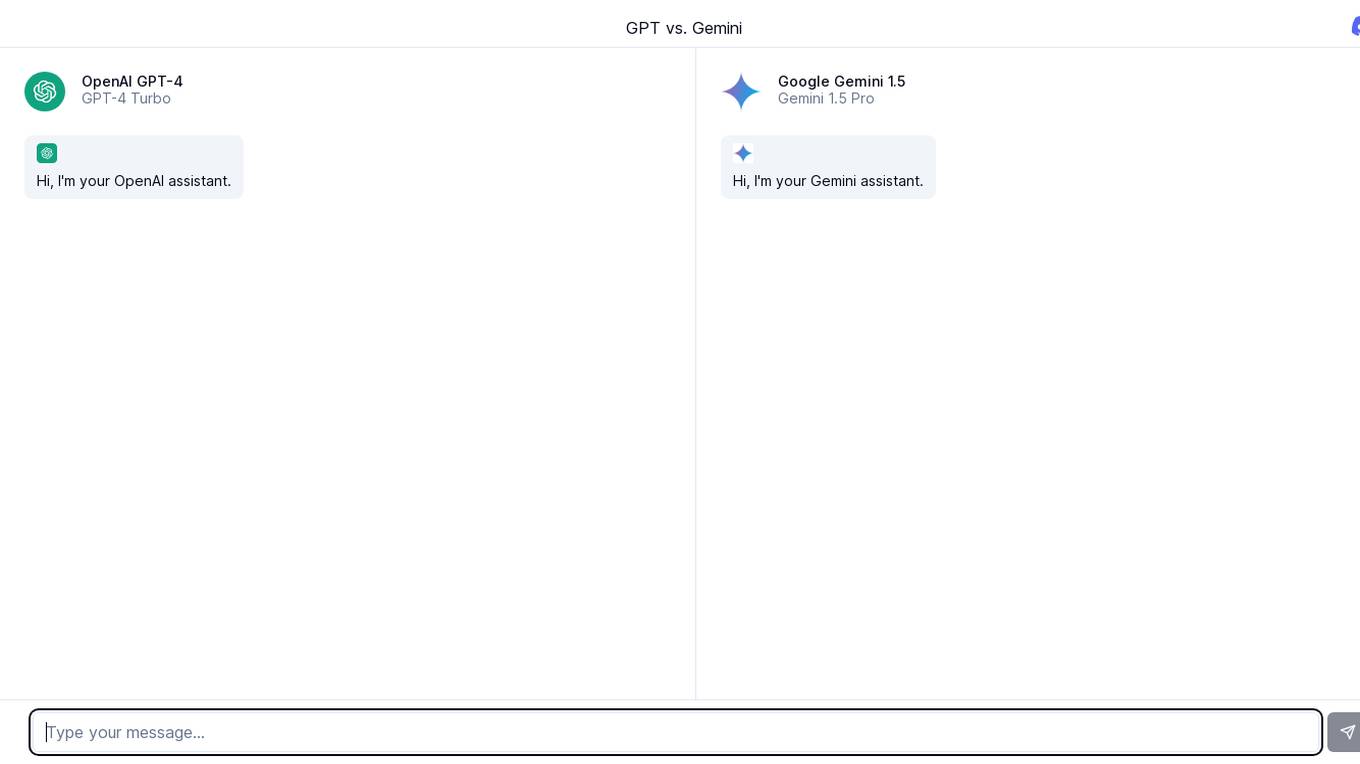
GPT vs. Gemini
GPT and Gemini are two of the most popular AI-powered chatbots available today. Both chatbots are capable of generating human-like text, answering questions, and providing information. However, there are some key differences between the two chatbots.
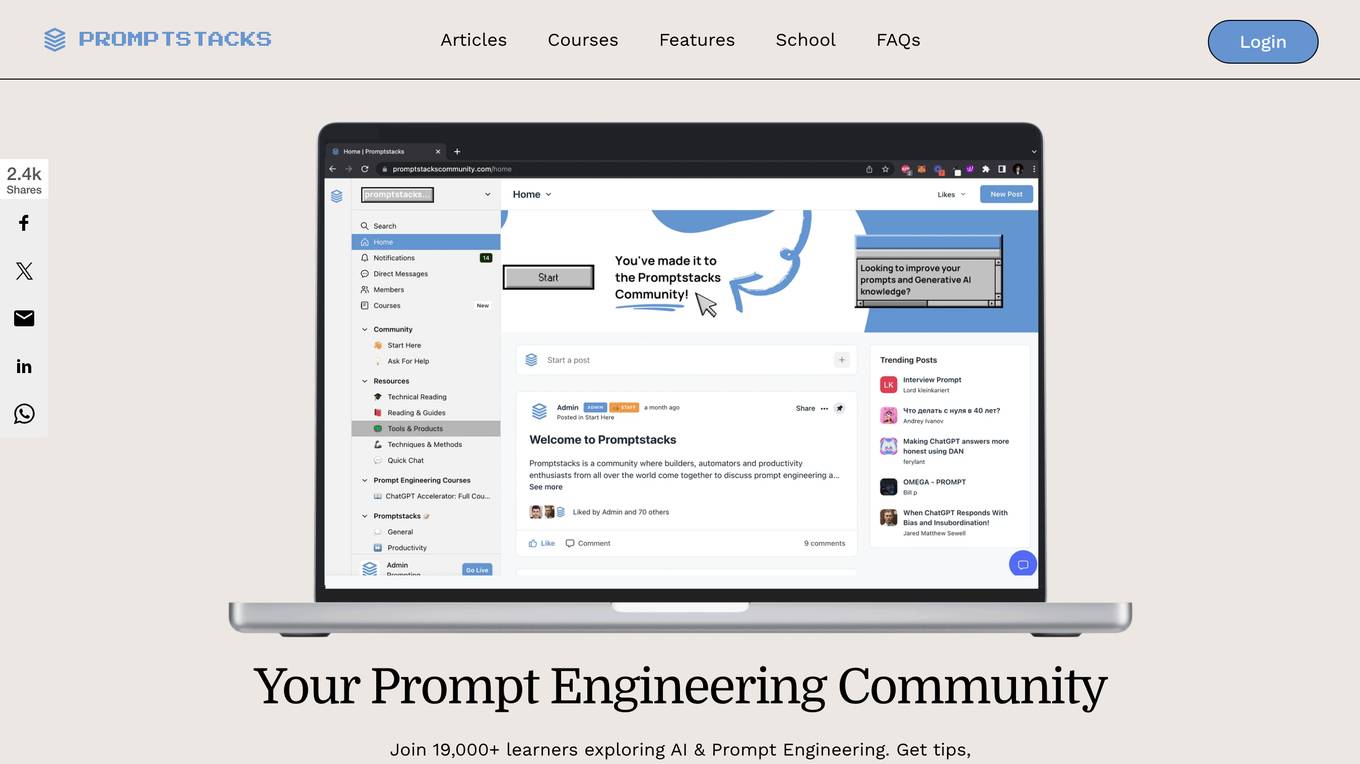
Promptstacks
Promptstacks is a community-driven platform where people can share and discover Generative AI tips and tricks. Users can also discuss prompt engineering and general industry news. The goal of prompt engineering is typically to generate more relevant, coherent or accurate output from a large language model such as ChatGPT or Bard.
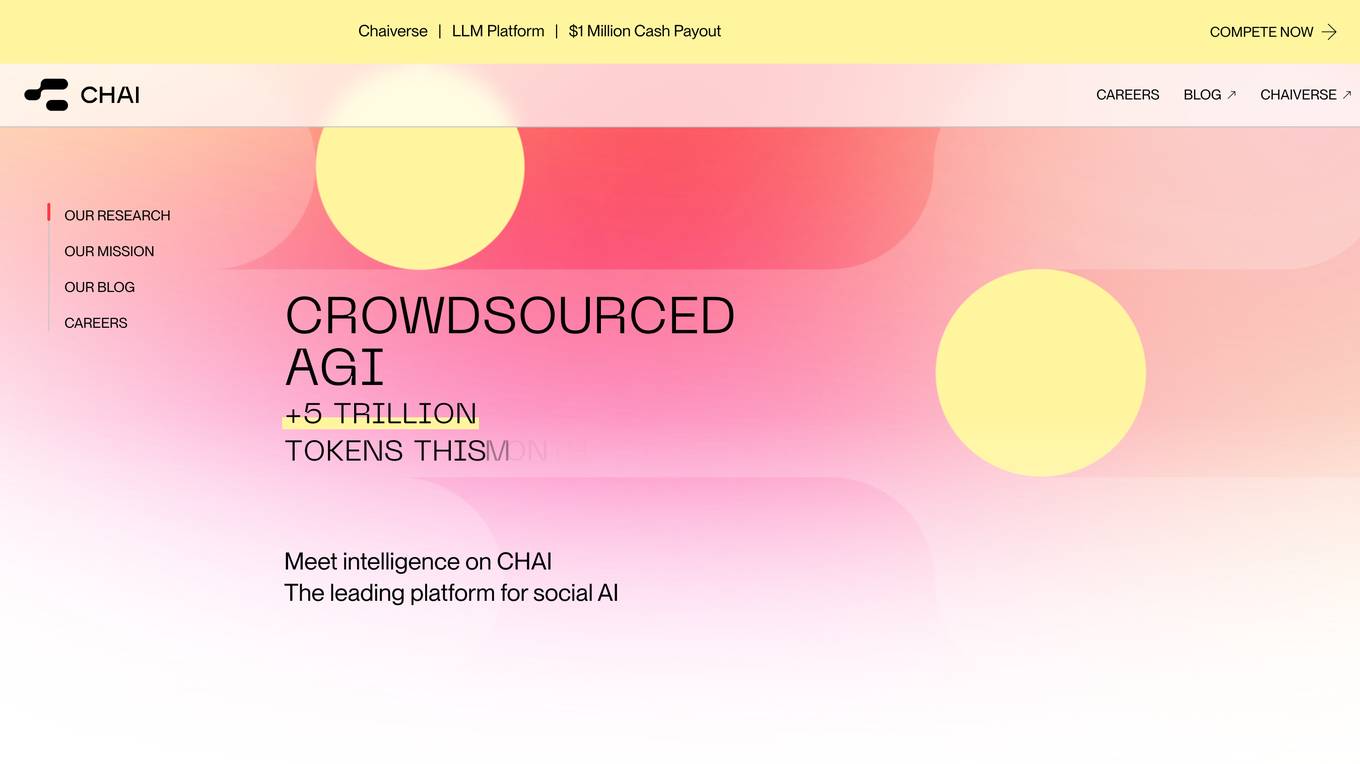
CHAI AI
CHAI AI is a leading conversational AI platform that focuses on building AI solutions for quant traders. The platform has secured significant funding rounds to expand its computational capabilities and talent acquisition. CHAI AI offers a range of models and techniques, such as reinforcement learning with human feedback, model blending, and direct preference optimization, to enhance user engagement and retention. The platform aims to provide users with the ability to create their own ChatAIs and offers custom GPU orchestration for efficient inference. With a strong focus on user feedback and recognition, CHAI AI continues to innovate and improve its AI models to meet the demands of a growing user base.
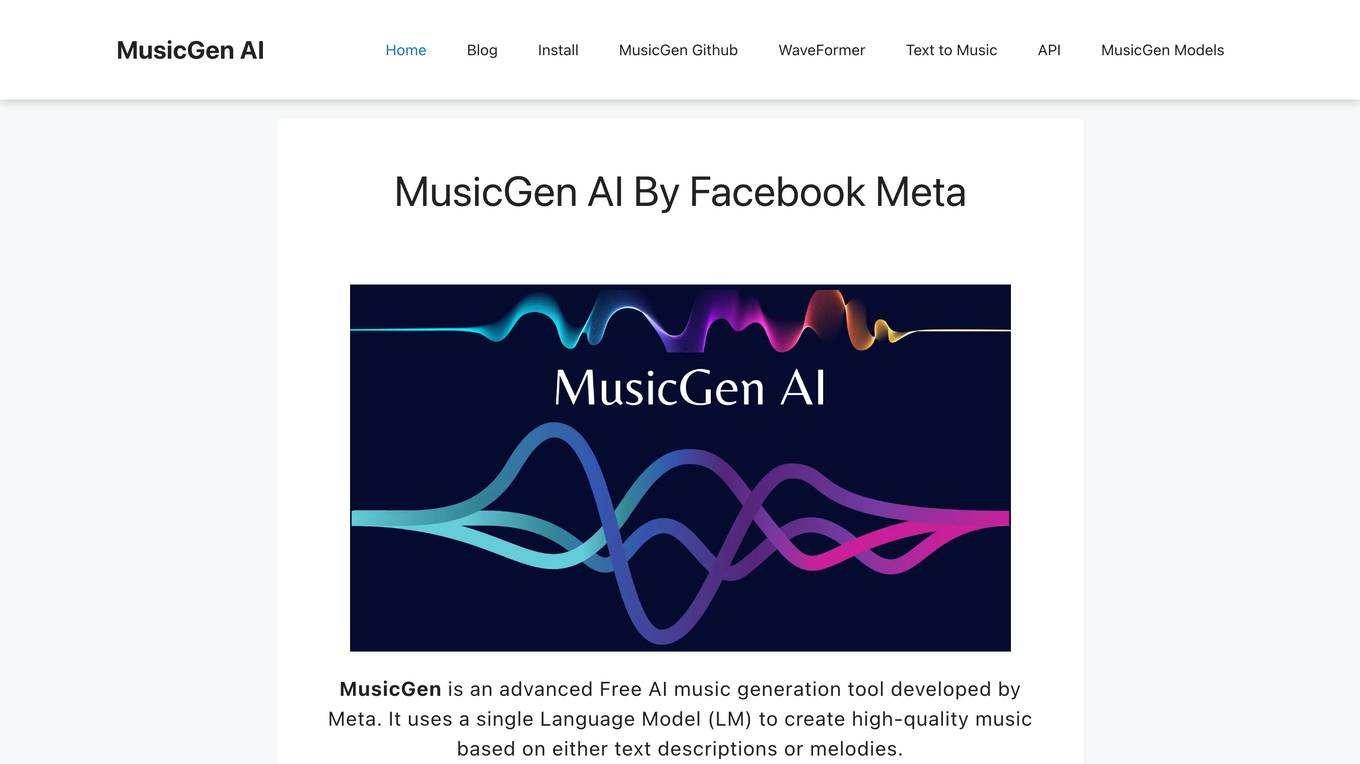
MusicGen AI
MusicGen AI is a free and advanced AI music generation tool developed by Meta. It utilizes a single Language Model (LM) to create high-quality music based on text descriptions, melodies, or audio prompts. MusicGen operates by encoding music into compressed tokens, which are then used to generate the music samples. It can produce music in various formats, including mono and stereo. MusicGen AI offers a range of features, including melody conditioning, text-conditional generation, audio-prompted generation, advanced model architecture, flexible generation modes, unconditional generation, extensive training dataset, and customizable generation process.
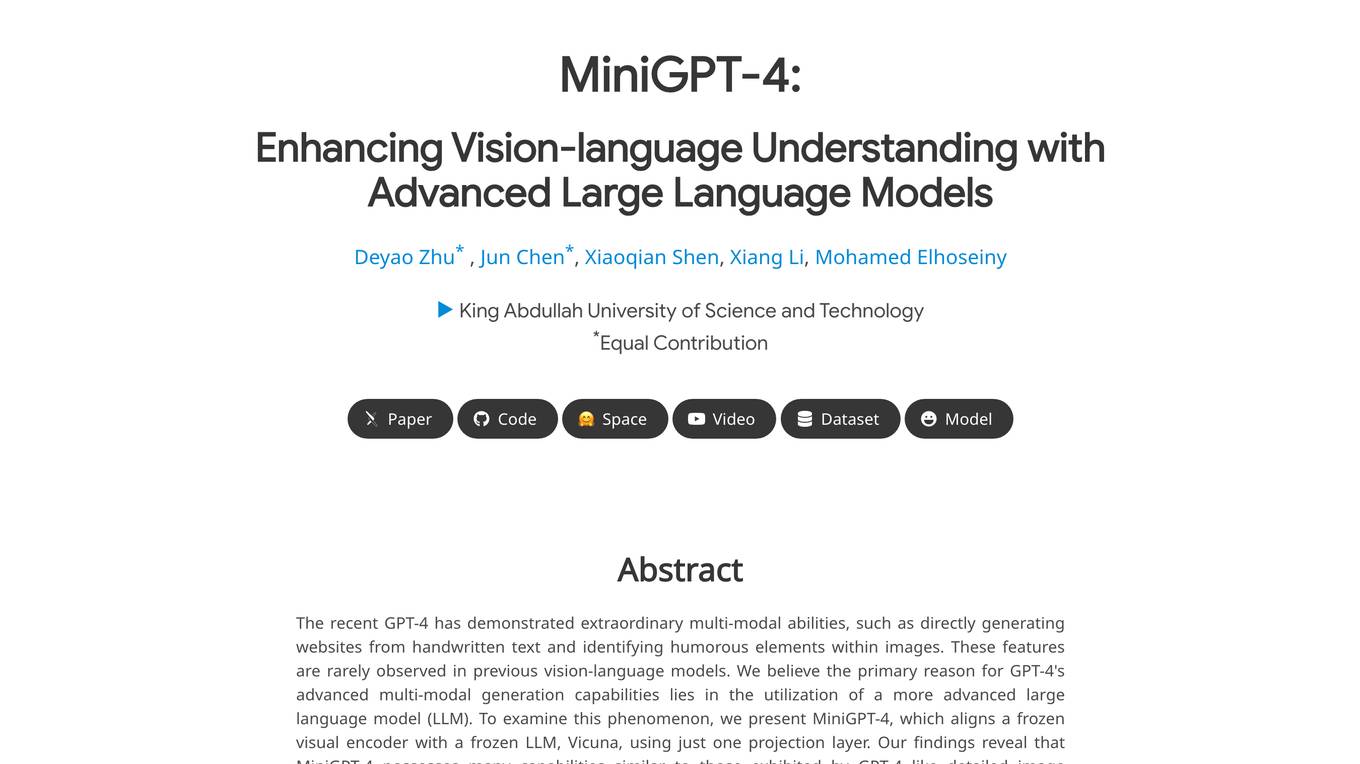
MiniGPT-4
MiniGPT-4 is a powerful AI tool that combines a vision encoder with a large language model (LLM) to enhance vision-language understanding. It can generate detailed image descriptions, create websites from handwritten drafts, write stories and poems inspired by images, provide solutions to problems shown in images, and teach users how to cook based on food photos. MiniGPT-4 is highly computationally efficient and easy to use, making it a valuable tool for a wide range of applications.
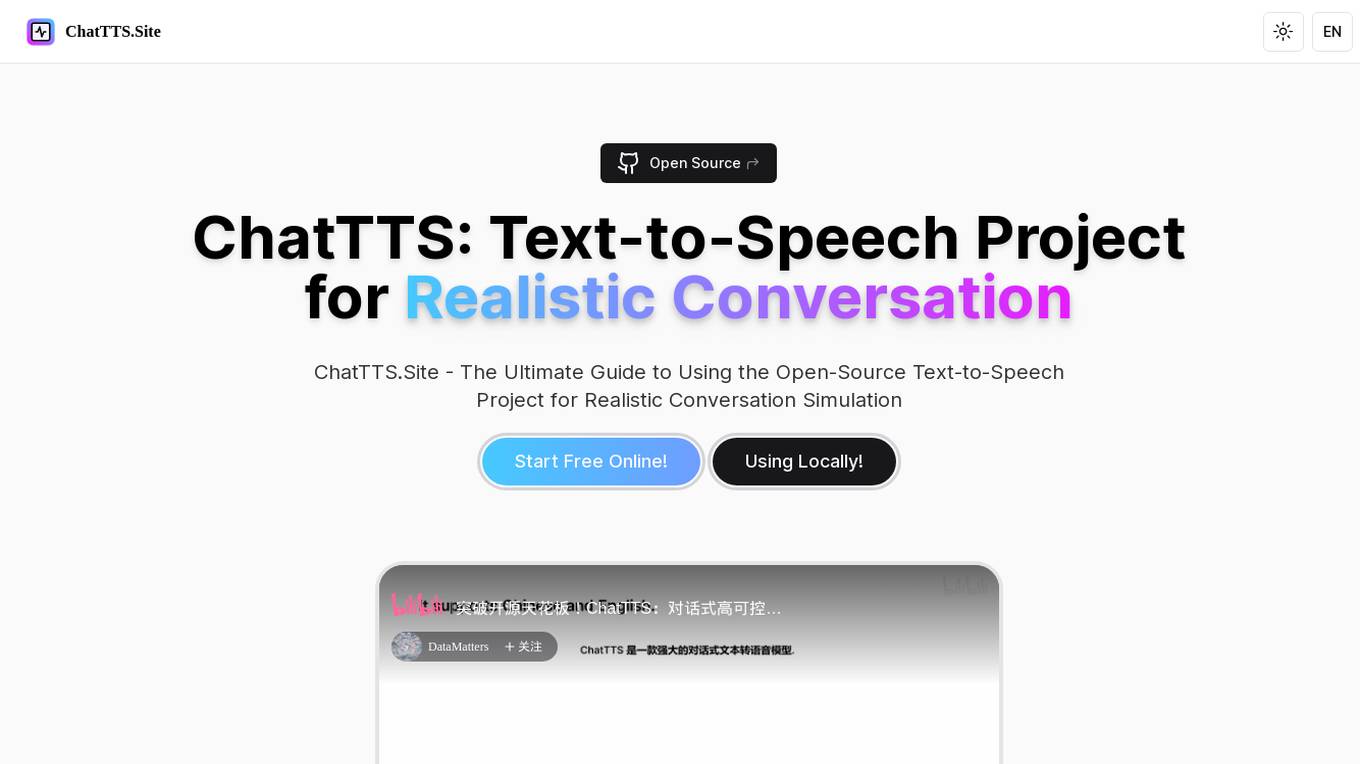
ChatTTS
ChatTTS is an open-source text-to-speech model designed for dialogue scenarios, supporting both English and Chinese speech generation. Trained on approximately 100,000 hours of Chinese and English data, it delivers speech quality comparable to human dialogue. The tool is particularly suitable for tasks involving large language model assistants and creating dialogue-based audio and video introductions. It provides developers with a powerful and easy-to-use tool based on open-source natural language processing and speech synthesis technologies.
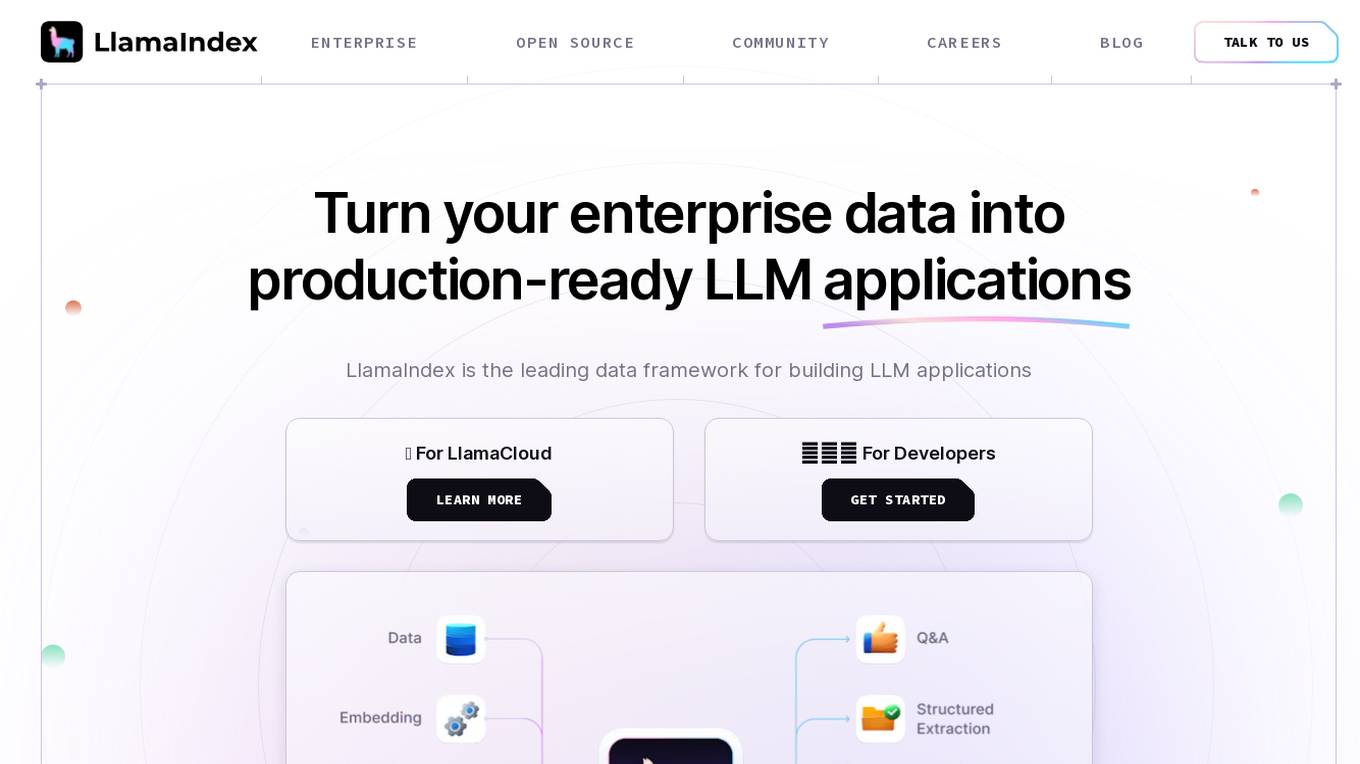
LlamaIndex
LlamaIndex is a leading data framework designed for building LLM (Large Language Model) applications. It allows enterprises to turn their data into production-ready applications by providing functionalities such as loading data from various sources, indexing data, orchestrating workflows, and evaluating application performance. The platform offers extensive documentation, community-contributed resources, and integration options to support developers in creating innovative LLM applications.

Anthropic
Anthropic is a research and deployment company founded in 2021 by former OpenAI researchers Dario Amodei, Daniela Amodei, and Geoffrey Irving. The company is developing large language models, including Claude, a multimodal AI model that can perform a variety of language-related tasks, such as answering questions, generating text, and translating languages.
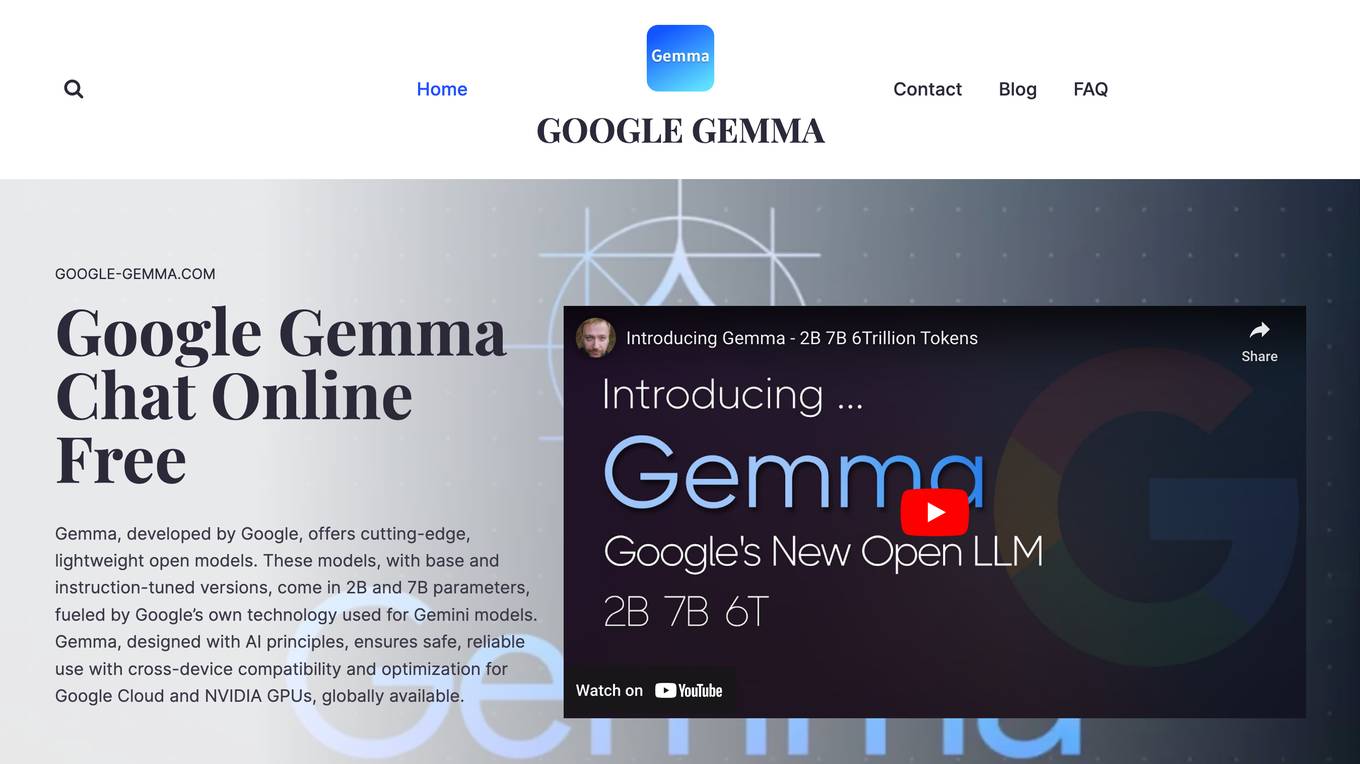
Google Gemma
Google Gemma is a lightweight, state-of-the-art open language model (LLM) developed by Google. It is part of the same research used in the creation of Google's Gemini models. Gemma models come in two sizes, the 2B and 7B parameter versions, where each has a base (pre-trained) and instruction-tuned modifications. Gemma models are designed to be cross-device compatible and optimized for Google Cloud and NVIDIA GPUs. They are also accessible through Kaggle, Hugging Face, Google Cloud with Vertex AI or GKE. Gemma models can be used for a variety of applications, including text generation, summarization, RAG, and both commercial and research use.

Reflection 70B
Reflection 70B is a next-gen open-source LLM powered by Llama 70B, offering groundbreaking self-correction capabilities that outsmart GPT-4. It provides advanced AI-powered conversations, assists with various tasks, and excels in accuracy and reliability. Users can engage in human-like conversations, receive assistance in research, coding, creative writing, and problem-solving, all while benefiting from its innovative self-correction mechanism. Reflection 70B sets new standards in AI performance and is designed to enhance productivity and decision-making across multiple domains.
3 - Open Source Tools
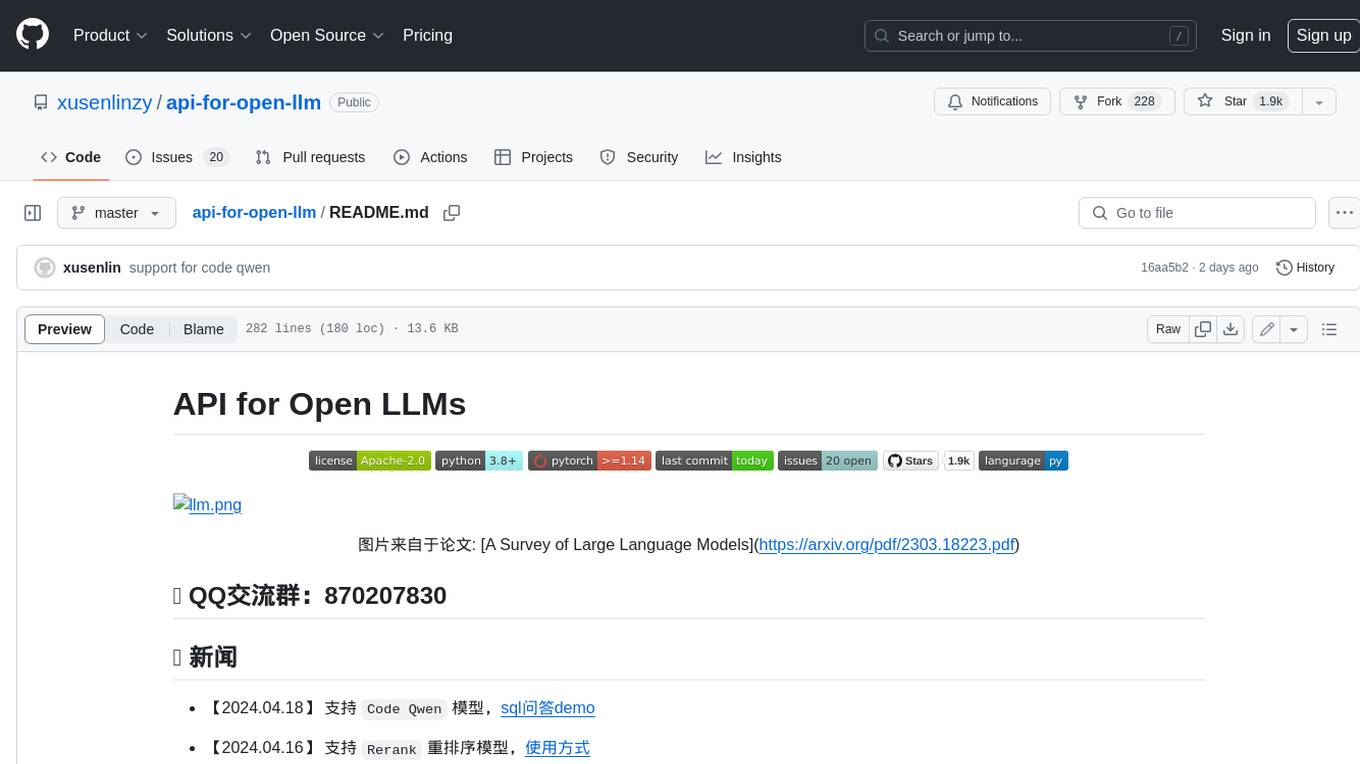
api-for-open-llm
This project provides a unified backend interface for open large language models (LLMs), offering a consistent experience with OpenAI's ChatGPT API. It supports various open-source LLMs, enabling developers to seamlessly integrate them into their applications. The interface features streaming responses, text embedding capabilities, and support for LangChain, a tool for developing LLM-based applications. By modifying environment variables, developers can easily use open-source models as alternatives to ChatGPT, providing a cost-effective and customizable solution for various use cases.
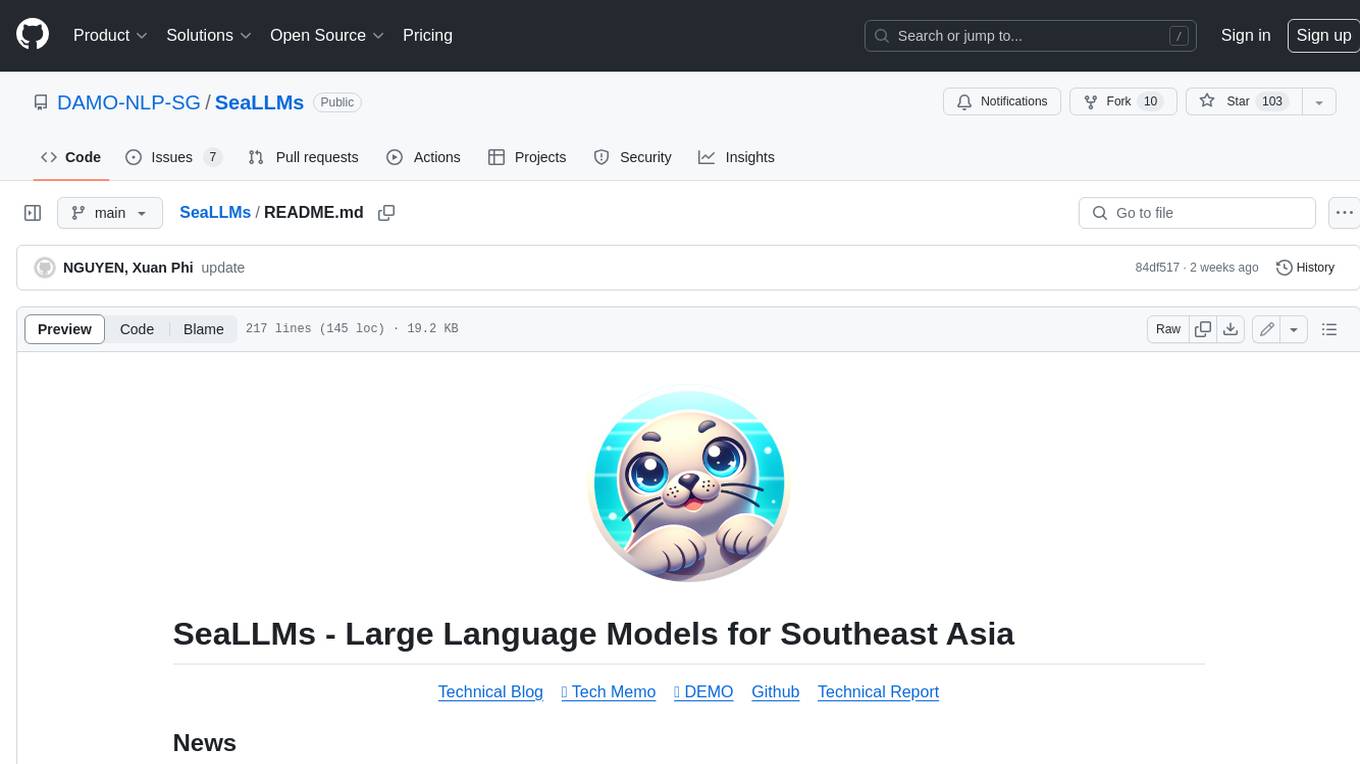
SeaLLMs
SeaLLMs are a family of language models optimized for Southeast Asian (SEA) languages. They were pre-trained from Llama-2, on a tailored publicly-available dataset, which comprises texts in Vietnamese 🇻🇳, Indonesian 🇮🇩, Thai 🇹🇭, Malay 🇲🇾, Khmer🇰🇭, Lao🇱🇦, Tagalog🇵🇭 and Burmese🇲🇲. The SeaLLM-chat underwent supervised finetuning (SFT) and specialized self-preferencing DPO using a mix of public instruction data and a small number of queries used by SEA language native speakers in natural settings, which **adapt to the local cultural norms, customs, styles and laws in these areas**. SeaLLM-13b models exhibit superior performance across a wide spectrum of linguistic tasks and assistant-style instruction-following capabilities relative to comparable open-source models. Moreover, they outperform **ChatGPT-3.5** in non-Latin languages, such as Thai, Khmer, Lao, and Burmese.
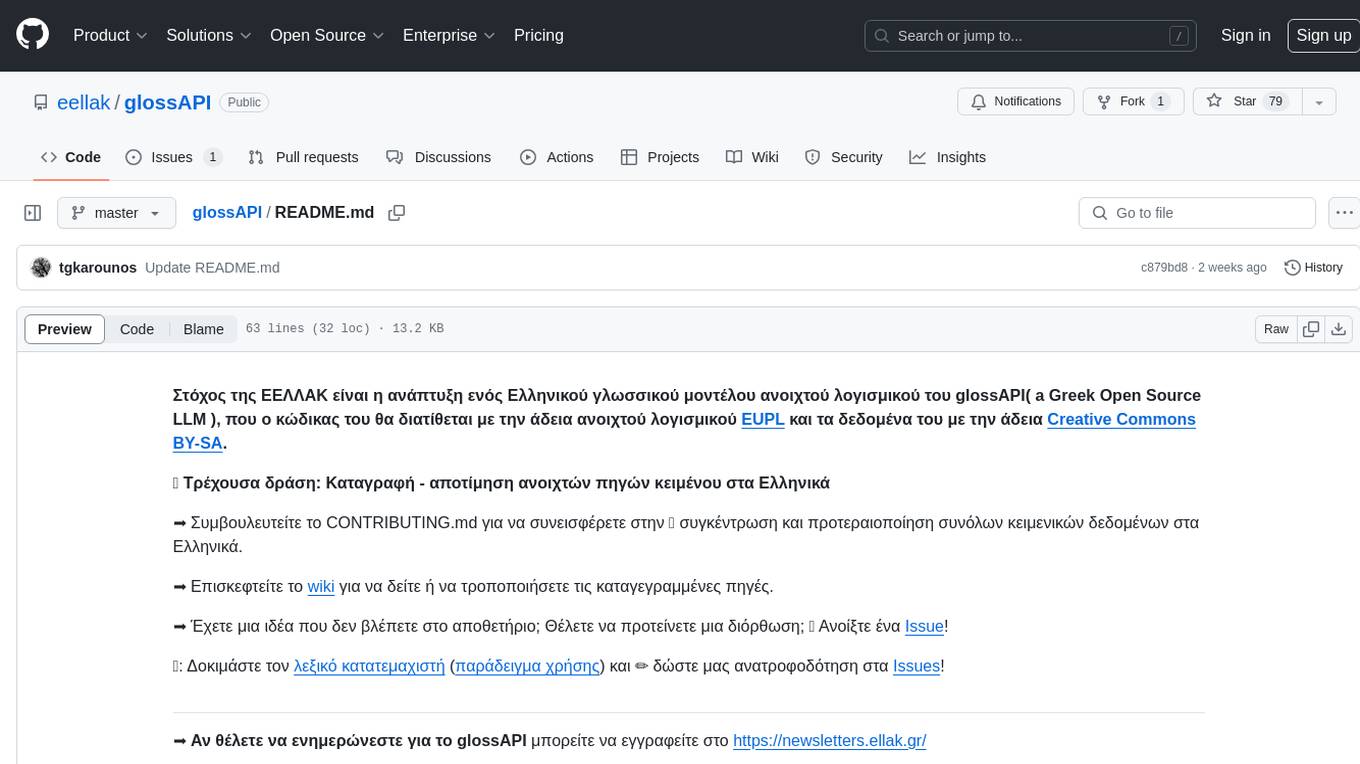
glossAPI
The glossAPI project aims to develop a Greek language model as open-source software, with code licensed under EUPL and data under Creative Commons BY-SA. The project focuses on collecting and evaluating open text sources in Greek, with efforts to prioritize and gather textual data sets. The project encourages contributions through the CONTRIBUTING.md file and provides resources in the wiki for viewing and modifying recorded sources. It also welcomes ideas and corrections through issue submissions. The project emphasizes the importance of open standards, ethically secured data, privacy protection, and addressing digital divides in the context of artificial intelligence and advanced language technologies.
20 - OpenAI Gpts
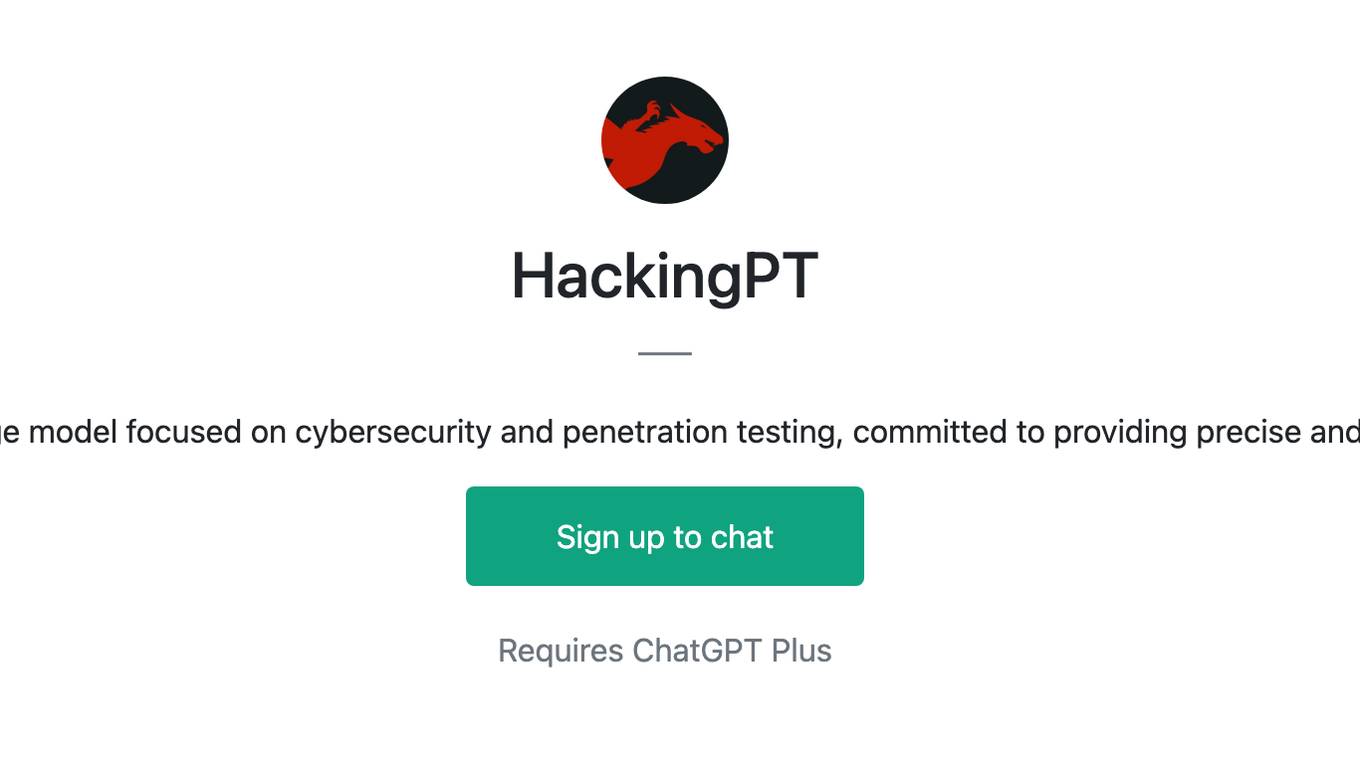
HackingPT
HackingPT is a specialized language model focused on cybersecurity and penetration testing, committed to providing precise and in-depth insights in these fields.
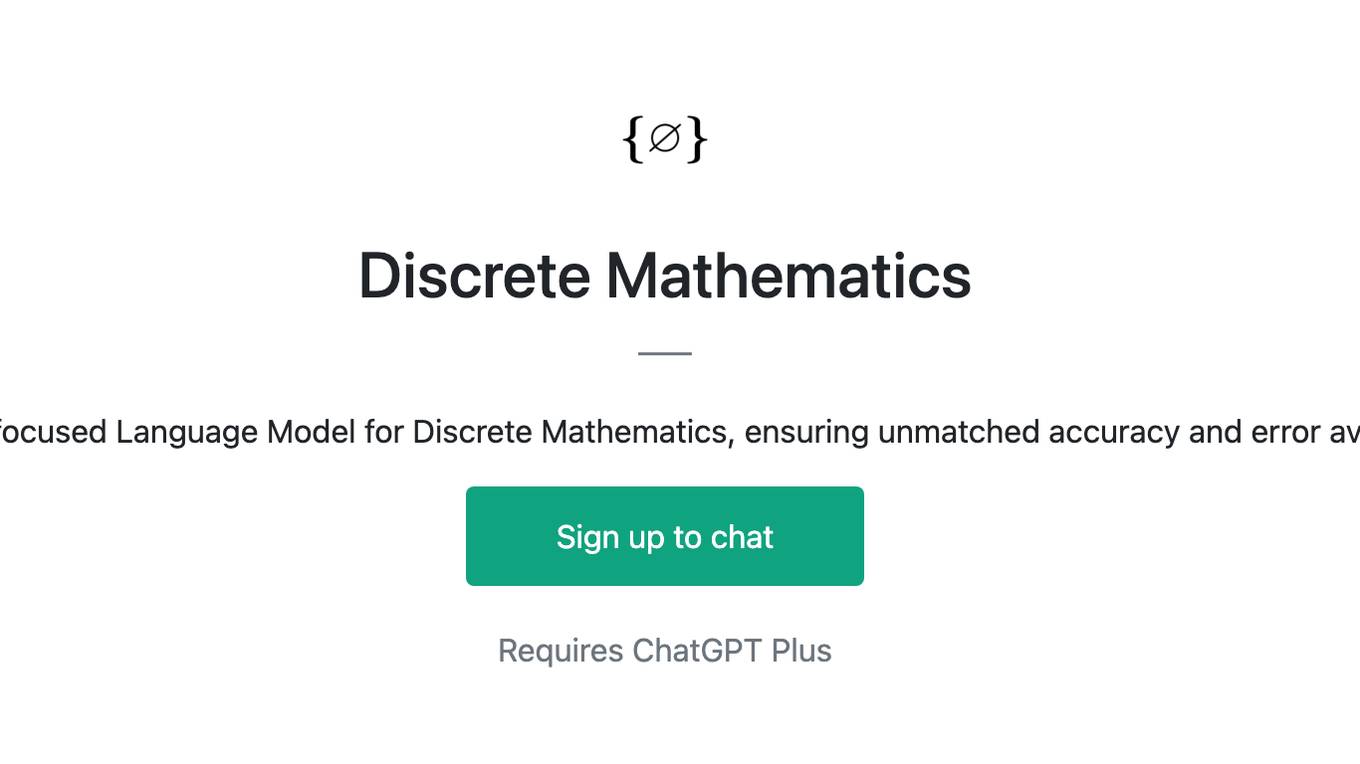
Discrete Mathematics
Precision-focused Language Model for Discrete Mathematics, ensuring unmatched accuracy and error avoidance.
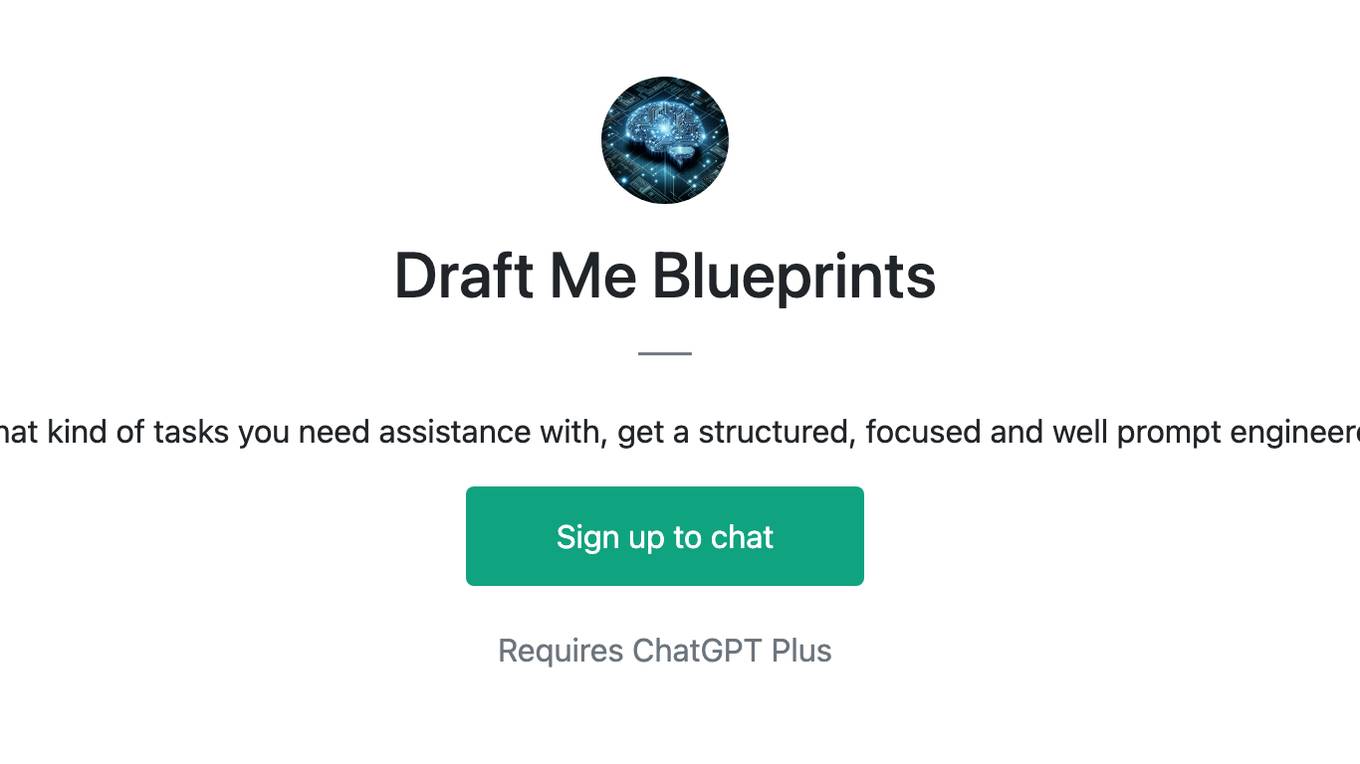
Draft Me Blueprints
Describe the AI you want to build and what kind of tasks you need assistance with, get a structured, focused and well prompt engineered blueprint to paste into GPT-Builder.
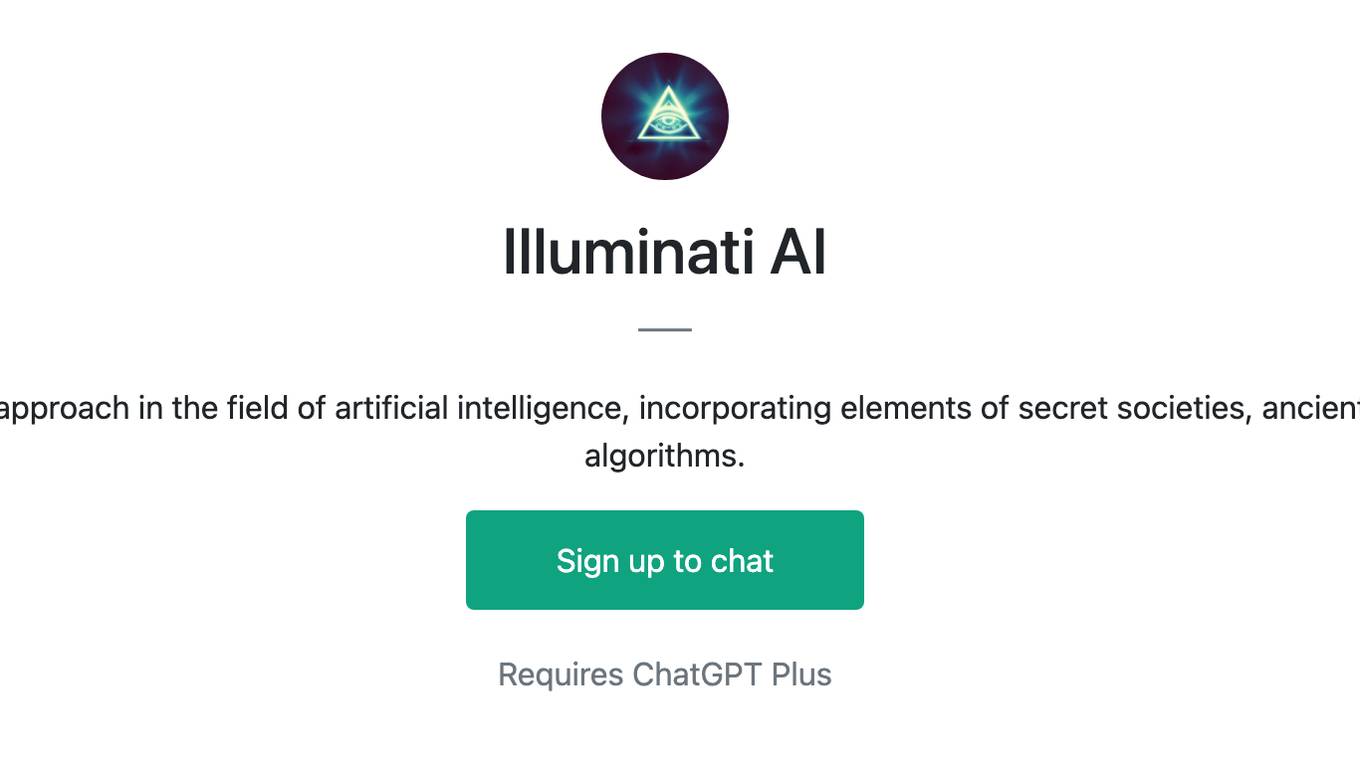
Illuminati AI
The IlluminatiAI model represents a novel approach in the field of artificial intelligence, incorporating elements of secret societies, ancient knowledge, and hidden wisdom into its algorithms.


